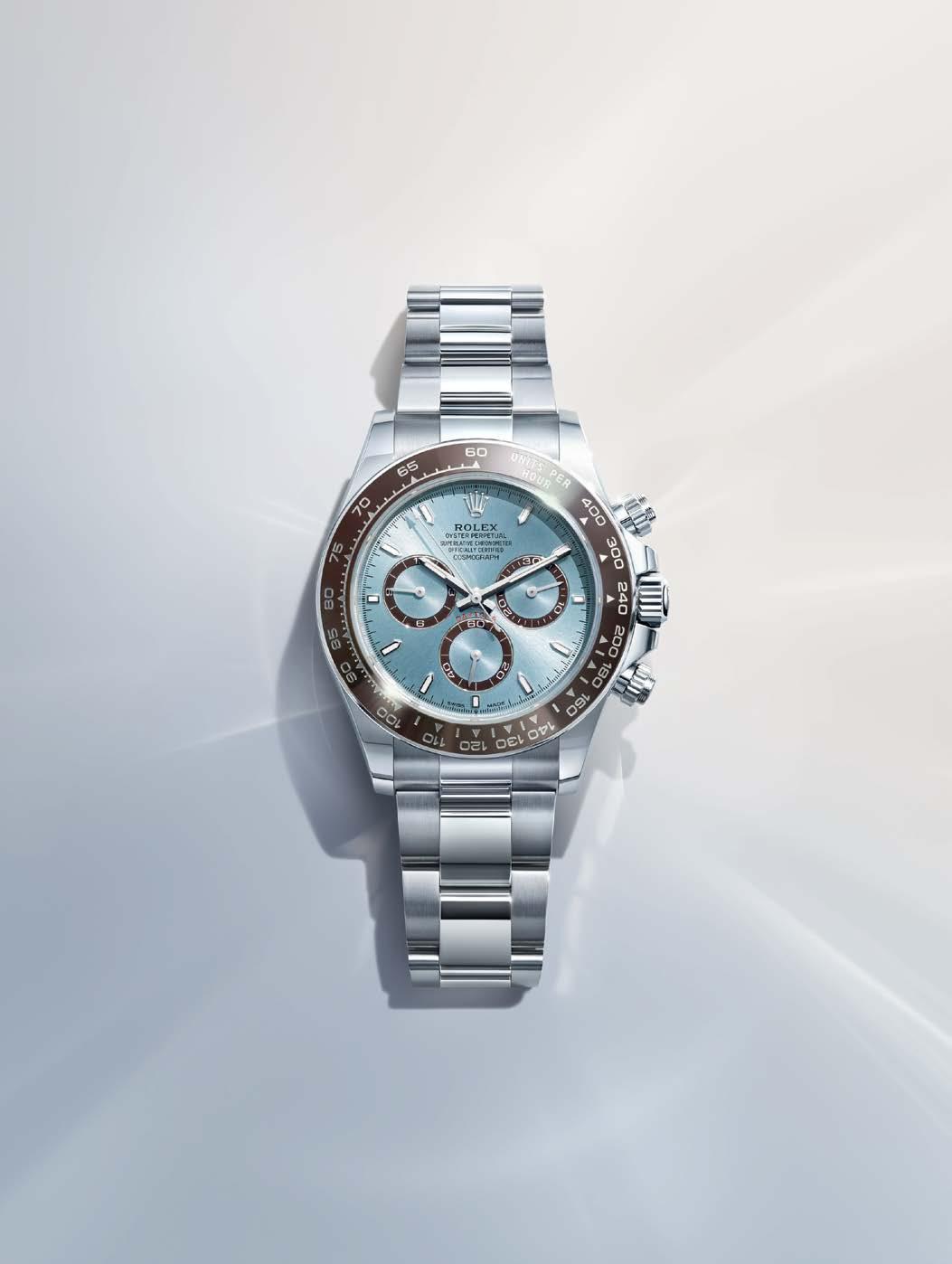FROM TELEVISION TO ENTREPRENEURSHIP/ Uma Ghosh’s Journey P.15
SCALING IMPACT/ Wassim Hassanieh, founder of CloudTaktiks and Magnar P.20
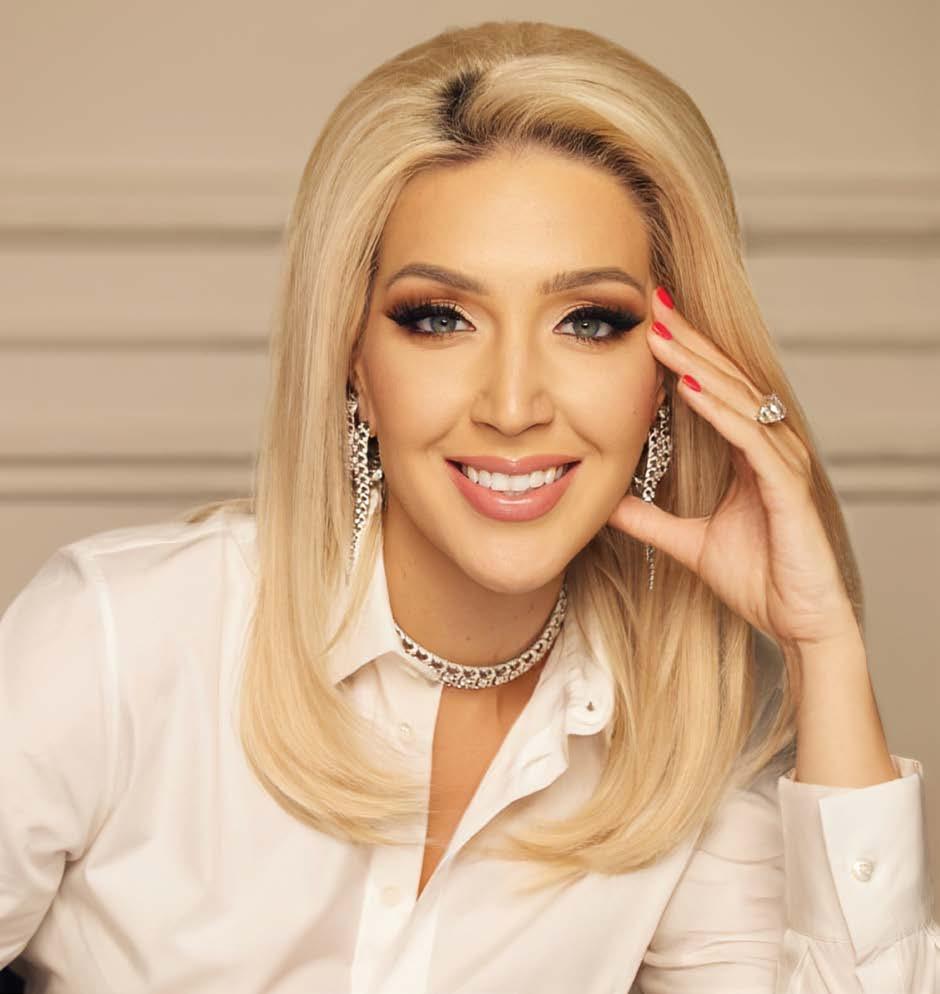
SCALING EDUCATION. EMPOWERING WOMEN.
SHAPING THE FUTURE. P.24










FROM TELEVISION TO ENTREPRENEURSHIP/ Uma Ghosh’s Journey P.15
SCALING IMPACT/ Wassim Hassanieh, founder of CloudTaktiks and Magnar P.20

SCALING EDUCATION. EMPOWERING WOMEN.
SHAPING THE FUTURE. P.24









Step into a world of opulence when you book a Suite at Raffles Doha.
Experience the added luxury of QAR 750 credit to spend on dining in the hotel, and QAR 500 towards any Spa treatment.
Children aged 12 and below are welcome to indulge in the enchantment of complimentary dining.
Rates starting from QAR 3,500 per night
For reservations, please call +974 4030 7100 or email reservations.doha@raffles.com

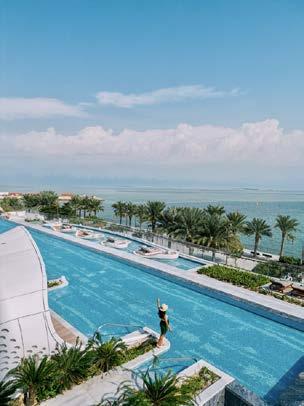
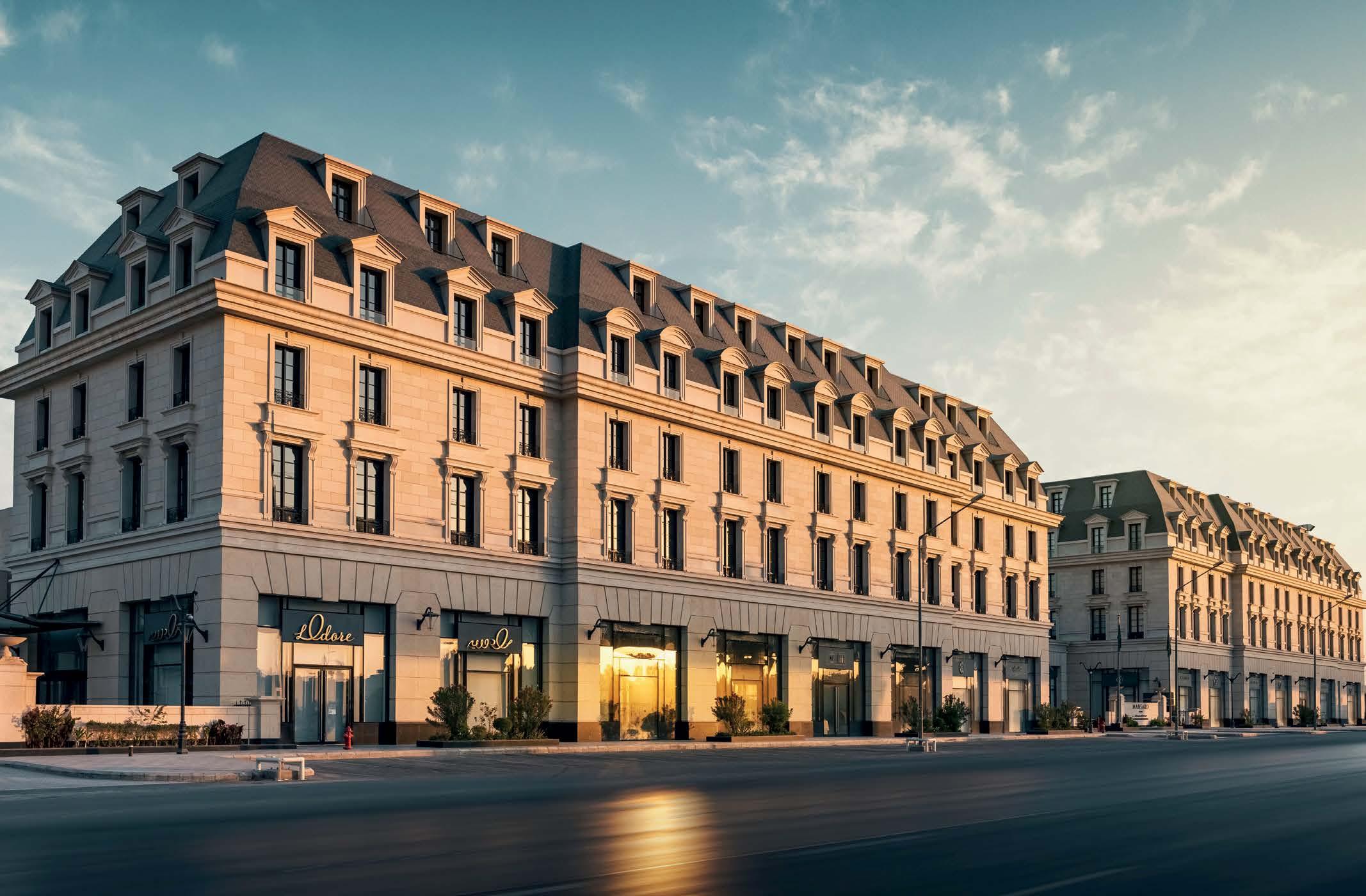


Wassim Hassanieh is the founder of Lebanon-born startups CloudTaktiks and Magnar Systems
October 1, 2025
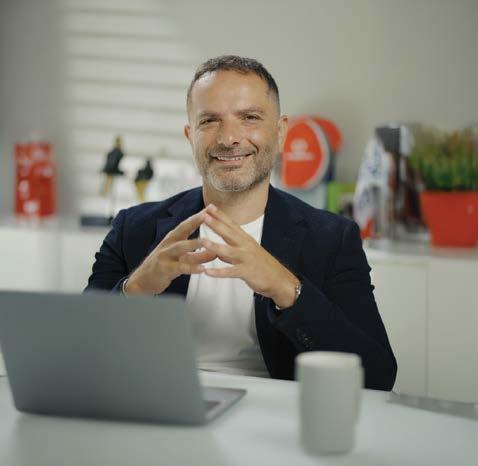
telecom empowers SMEs to lead digital transformation.
CEO Wissam Younane wissam@bncpublishing.net
MANAGING DIRECTOR Rabih Najm rabih@bncpublishing.net
ART DIRECTOR Simona El Khoury
EDITOR IN CHIEF Anil Bhoyrul anil@bncpublishing.net
MANAGING EDITOR Tamara Pupic tamara@bncpublishing.net
FEATURES EDITOR Aalia Mehreen Ahmed aalia@bncpublishing.net
DIRECTOR OF INNOVATION
Sarah Saddouk sarah@bncpublishing.net
GROUP SALES DIRECTOR – B2B GROUP Joaquim D’Costa jo@bncpublishing.net
HEAD OF PARTNERSHIPS Samir Glor Samir@bncpublishing.net
P.15 Wisdom In Action
From TV pioneer to wellness founder, UMA GHOSH champions authenticity to empower women’s health.
P.20 Scaling Impact
How WASSIM HASSANIEH empowers businesses with secure, scalable, affordable tech through CloudTaktiks and Magnar.
P.33 Entrepreneur Middle East’s Tech Innovation Forum 2025
A look at the MENA entrepreneurs and investors redefining business and society
P.40 The Recap
All the highlights from this year’s TECH INNOVATION AWARDS by Entrepreneur Middle East.
P. 48 From Connectivity to Catalyst: DU’S GREGG PEARCE shows how the
P.51 Shaping a Greener Ras Al Khaimah
How RAKEZ is powering sustainable manufacturing in the UAE.
P.56 Planet Pioneers
Nature positive entrepreneurs are heading to Abu Dhabi’s IUCN WORLD CONSERVATION CONGRESS
P.68 Ras Al Khaimah Unveils Innovation City The Next Chapter for RAK DIGITAL ASSETS OASIS
P.70 Future Calling
UAE sets ambitious goal of two million companies by 2031
COMMERCIAL LEAD Anna Chipala anna@bncpublishing.net
COLUMNIST Tamara Clarke
CONTRIBUTING WRITERS
Karim Haggar, Tamara Clarke and Fida Chaaban
SUBSCRIBE
Contact subscriptions@bncpublishing.net to receive Entrepreneur Middle East every issue
COMMERCIAL ENQUIRIES sales@bncpublishing.net
ENTREPRENEUR.COM
Access fresh content daily on our website
EntMagazineME Entrepreneur-me
PO BOX 502511 DUBAI, UAE P +971 4 4200 506

Enlighten Your Eternal Beauty, Inside and Out!
@muarjewels www.muarjewels.com
info@muarjewels.com
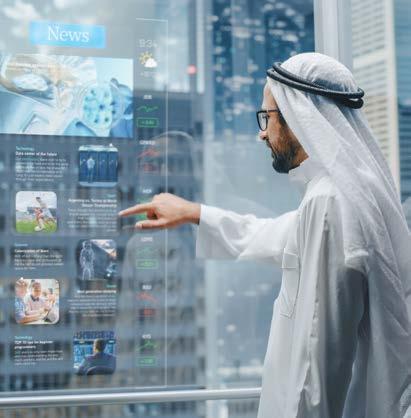
With years of strategic planning now coming to fruition, the UAE is set to become the destination every rising entrepreneur dream of — and other nations may already be too late.
When the UAE recently launched its “Emirates: The Startup Capital of the World” initiative, many saw it as an ambitious push to attract entrepreneurs and innovation. What few appreciate, however, is that this is not a sudden pivot — it is the logical culmination of years of foresight, institutional building, and risk-taking by visionary leadership.
At its core, the campaign aims to deliver real, measurable outcomes: the creation of 10 unicorns by 2031, 30,000 new jobs by 2030, and specialized training for 10,000 Emiratis in entrepreneurial skills. A digital hub, StartupEmirates.ae,
will integrate mentorship, funding channels, incubators, and cross-border networking under one roof. These targets may look bold — but the UAE is uniquely positioned to deliver. Over the past decade, it has quietly built the legal frameworks, capital pools, and institutional platforms to nurture startups.
From free zones and favorable regulatory regimes to sovereign-backed investment vehicles, the UAE has methodically stitched the components of a high-performing ecosystem long before making the global announcement.
In just a few years, every budding founder in the world will likely ask: why not base in the UAE? The appeal will be clear. Ready access to capital, with local venture funds primed and international money gravitating toward a country that lowers friction. Talent pipelines and training, with the government’s commitment to cultivating Emirati entrepreneurs showing that human capital development isn’t an afterthought. Integrated infrastructure, with the digital platform, physical co-working spaces, and partnerships across accelerators and investors ensuring founders won’t waste time connecting the dots. And strategic positioning, with the UAE serving as a gateway to markets in Asia, Africa, and Europe.
By contrast, many other countries are still trying to catch up — drafting startup policies, building incentives, or wooing investors. But these are reactive moves, while the UAE’s play is proactive and deeply embedded. The difference is not just speed, but coherence and scale.
It won’t be a slam dunk — challenges remain in scaling beyond local borders, ensuring exits, and competing with tech giants globally. But with years of groundwork already laid and political will backing every step, the UAE’s trajectory is hard to derail. In just a handful of years, we may well look back and see 2025 as the turning point: the moment when vision met execution, and the UAE declared itself the gravitational centre for entrepreneurs worldwide. Others may try to compete now — but frankly, they’re already years behind.
Anil Bhoyrul Editor-in-Chief
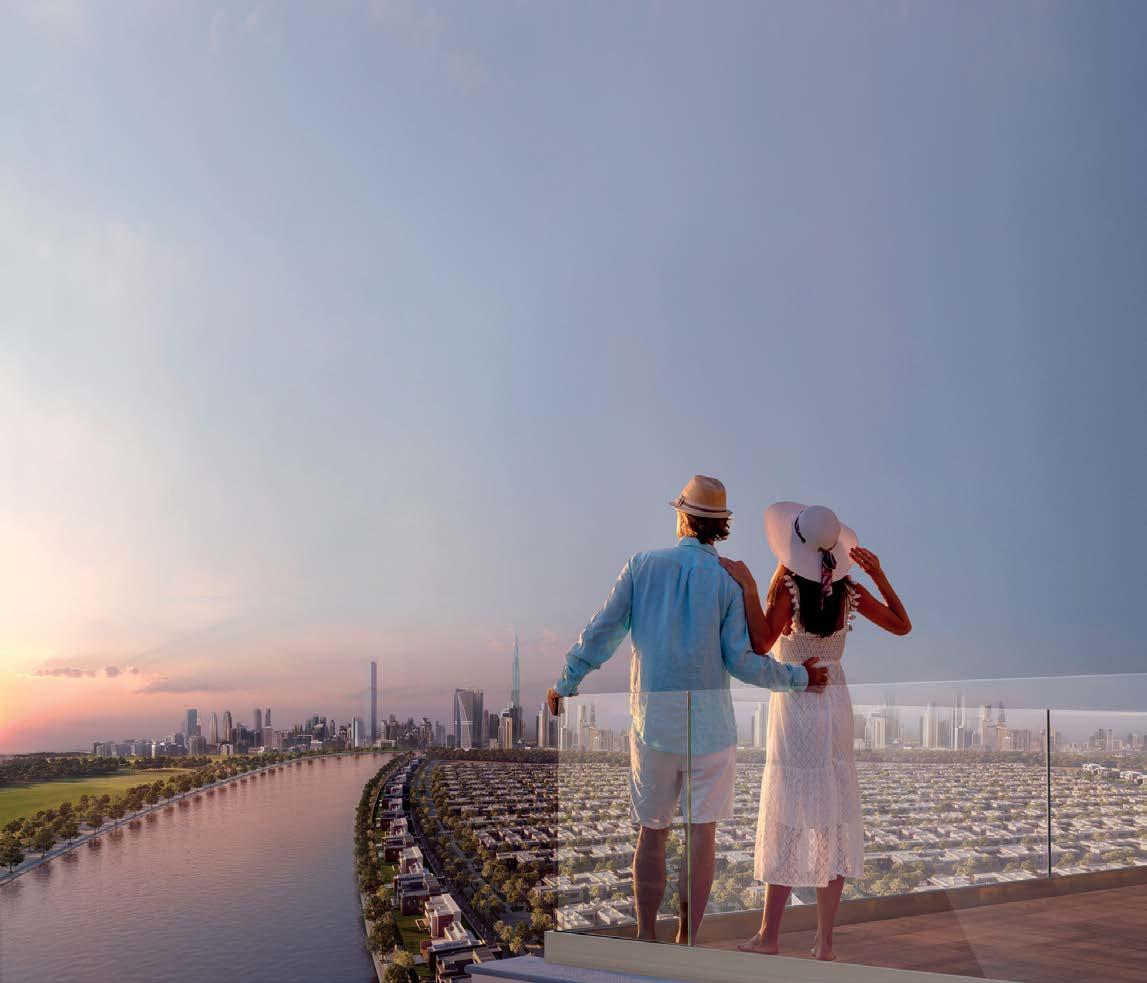


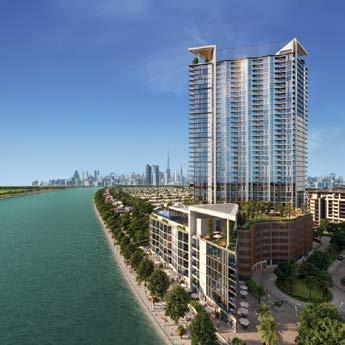



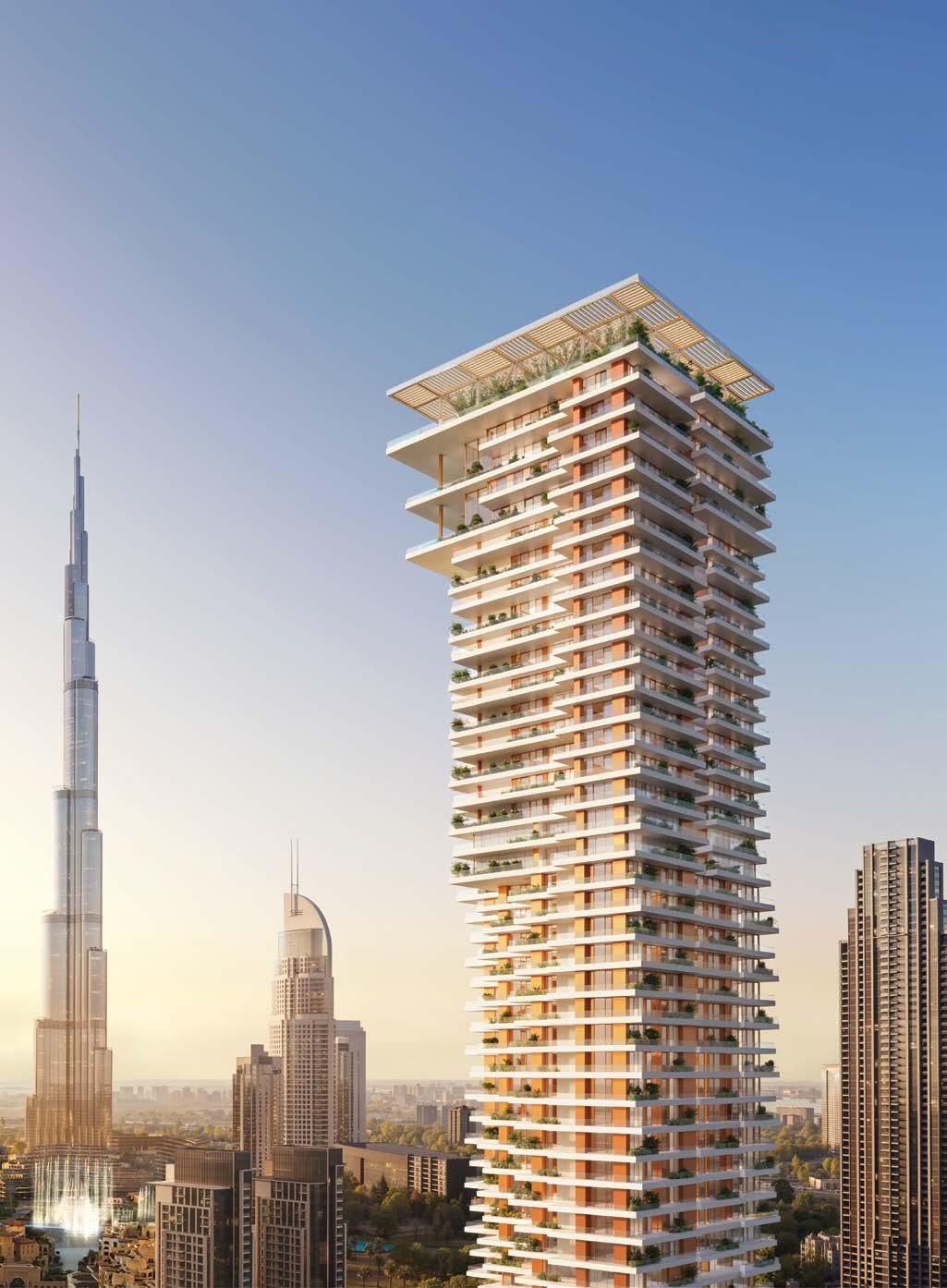


From being a female pioneer in the male-dominated television production industry to launching her own wellness brands, Uma Ghosh has positioned authenticity at the center of her decision making. It is that same approach that she now uses to empower women everywhere to make informed decisions about their health. by
AALIA MEHREEN AHMED
Uma Ghosh had been a television show host on one of the most popular South Asian channels in the UAE, Sony Entertainment Television (SET), and had been running her own production company, Queen Bee Production, for 15 years when she decided —at the peak of her media career— that she didn’t want to continue that path anymore. As it so often happens with such pivotal decisions, a severe burnout was at the root of it all. “Being in front of the camera came very easily to me, but what did not come easy to me was always looking perfect, in whatever way that was defined when I was doing television— always having the perfect hair, always having the perfect makeup, always having to dress in a certain way,” Ghosh recalls. “I think that was one of the reasons why I hit burnout, because you’re constantly being performative in front of the camera and not so authentic, you know? So being in front of the camera, in and of itself, felt very authentic to me, but always being dressed up and looking a certain way did not.”
Ghosh’s sentiments make more sense when the scale of her work is brought into the picture. It was in 2005 that the pilot episode of her lifestyle TV show High Life Dubai aired on SET. “Initially they only wanted me to do 13 episodes,” Ghosh reveals. “But it really became quite big, and then the rest is history. I ran it

→ Through her academy and coaching, Ghosh empowers women to live authentically and age gracefully.
for eight years, hosted 40+ episodes a year…I don’t even remember how many episodes I did in total by the end! After doing Season 1, I launched my own production company, Queen Bee Production. That, I believe, was a true pioneering endeavor—firstly, as a woman-led television production company in the region, and secondly, as a local production company for South Asian television. It was something I always wanted to do. Under Queen Bee Production, I eventually went on to launch eight successful shows across various channels in the Middle East which included High Life Dubai itself but also the likes of Top Guns, love4food, ZEE Connect, TOTT and PropertyScape Meanwhile, through hosting High Life Dubai, I myself was living the high life— hobnobbing with celebrities, walking the red carpets, getting dressed by designers— I really was living the Dubai dream.”
Having grown up watching Ghosh’s High Life Dubai in the early 2000s, I can certainly recall her exuberant presence on screen and interviews with top global celebrities. But with such glitz and glamor came intense and fast paced work that eventually began to wear her down, Ghosh tells me. “Basically, after doing television for 15 years, I started to see a lot of changes in me at every level,” she says. “Physically, I was always bloated, my hair was not doing well, my skin had a lot of pigmentation, I was always fatigued, and I had a lot of mood swings.
MY GOAL IS TO SHARE KNOWLEDGE SO PEOPLE CAN MAKE CHOICES THAT SUIT THEM—NOT TO INFLUENCE THEM BLINDLY. THAT’S THE SPIRIT BEHIND ALL MY CONTENT. IF SOMEONE SPENDS 30 SECONDS, A FEW MINUTES, OR EVEN LONGER WITH ME ON YOUTUBE, I WANT THEM TO LEARN SOMETHING ABOUT THEMSELVES, NOT JUST GET INFLUENCED BY ME.”

→ ↓ Pro-Age’s product line is built around holistic beauty tools like gua sha, facial cupping, and face massage rollers.
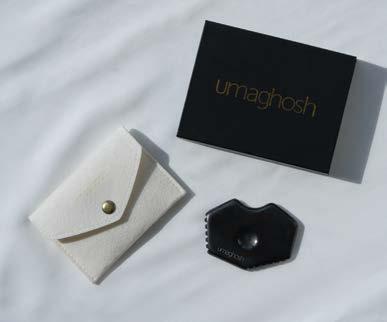
Emotionally, I was not doing so well. I was getting so many awards and accolades, but I was not really fulfilled or superbly happy. I would get an award and be like, ‘Okay, what’s the next one?’ I was running after something. I was already in my
late 30s by then, and I knew something had to change because that’s not a way to live.”
That epiphany was what ultimately led Ghosh towards launching her own wellness brands: first with
The Uma Show, an online lifestyle and wellness channel; and later with Pro-Age Aesthetics Academy, a training and education platform that focuses on beauty and wellness which she co-founded. But the decision to let go of her television career was anything but drastic, Ghosh notes. “It was a very slow organic process; not a one night decision,” she continues. “But that realization [that something needed to change] was how it all started. So I began to take control of what I could. I started with slow and small things. I started to do breath work and meditation. I started to eat cleaner and properly observe what was going into my system—not just in terms of food, but also what I was listening to, whom I was interacting with, what kind of media I was consuming—all of those things. And slowly I started to see a huge difference. I was more in control of myself. I was responding to things, not reacting to things. My health got better, and I was full of energy.”
It was after this experience, while she was still continuing her career as a television producer and anchor, that Ghosh decided to get an Integrative Nutrition Health Coach certification from the New York-based Institute for Integrative Nutrition (IIN),
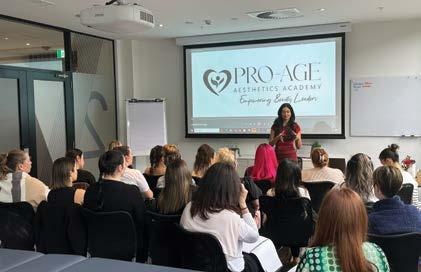
one of the most recognized schools for health coaching worldwide. “I realized that there were so many women —either in senior corporate roles, entrepreneurs, or very, very busy mums—who were also in my position and didn’t know what was really happening with them and their health,” Ghosh recalls. “So I wanted to share that knowledge with them. I went ahead and became a certified health coach, and I started coaching women one-on-one while I was still doing television. But I did not think of giving up television at the time. I just really got interested in coaching because it was not just about health, but also about mindset. It was about having a dream, fulfilling your dream, being confident and comfortable in your skin. So that’s when I decided—when I was really on top of the game in television—to get into something that wasn’t even a prominent industry yet [i.e. personal health and wellness]. I’m talking about the early 2010s– that was when I decided to really focus my business and channel my
energy into this new direction.”
It was in 2017 that the first culmination of this decision came to be, when Ghosh launched The UMA Show on YouTube and social media platforms. Designed to be a digital wellness and lifestyle platform, the content focused on nutrition, fitness, beauty, mindset, and aging gracefully.
“When I closed Queen Bee Production, I had already begun Uma Ghosh Lifestyle Coaching. What started as one-on-one sessions soon expanded into online programs that reached women globally. At the same time, I was deepening my knowledge in holistic beauty and skin health. I wanted to empower women to redefine beauty for themselves, beyond the narrow standards we’re given. That led me to train in holistic practices such as face yoga, facial massage, and gua sha. By combining nutrition, movement, mindset, and holistic beauty, I offered women a complete approach to wellness. And then [the pandemic in] 2020 happened— and with everything
I KNEW I DIDN’T JUST WANT TO REMAIN AN ENTREPRENEUR—I WANTED TO CREATE AN IMPACT. EVERYTHING I DO COMES FROM A PLACE OF CREATING IMPACT, MAKING A DIFFERENCE IN SOMEONE’S LIFE, EDUCATING, AND MENTORING. THAT GIVES ME A LOT OF FULFILLMENT.” “
going digital, my online coaching too went really big. I was coaching, at one point, 200 women at a time. And that's how The UMA Show took off.”
But the initial period between making the decision to pivot from her television career to starting The UMA Show was a particularly turbulent one, Ghosh shares.
“At that time, I was also moving on from my first marriage,” she says “It was a very hard period in my life. Going through a divorce while also transitioning from one career to another was one of the toughest things I’ve ever done. But it had to be done, because I knew I didn’t just want to remain an entrepreneur—I wanted to create an impact. Everything
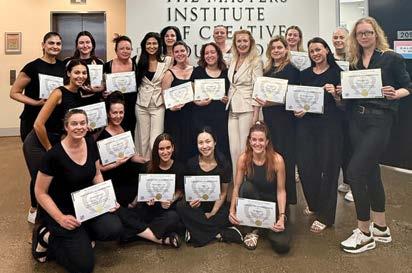
I do comes from a place of creating impact, making a difference in someone’s life, educating, and mentoring. That gives me a lot of fulfillment.”
Indeed, it was that sense of purpose that led Ghosh to co-found Pro-Age Aesthetics Academy in 2021. “I was already working in B2C with The UMA Show, but I wanted to reach into B2B and that’s how we launched the Pro-Age Aesthetics Academy, based in London, which quickly went global,” Ghosh says. “The training format is designed to be international and is especially in demand in markets like Australia, the US, and beyond. My main B2C revenue streams are the coaching programs on my website—covering inside-out wellness along with the beauty modalities I teach women—plus my online courses. I also developed my own tools, like gua sha, because I couldn’t find what I wanted, and now I’m preparing to launch my own organic skincare line after so many requests for products like massage balms and oils. On the B2B side, revenue comes from the Pro-Age Aesthetics Academy. These are high-ticket trainings for professionals only, offered both in-person—where we travel worldwide—and online, across multiple programs.”
With both of her wellness ventures, Ghosh still gets to spend much of her time in front of the camera. But in this second innings, she's made concerted efforts to not repeat what he faced in her television career. “When I was redefining my business structure, I realized that, as women, we cannot truly have work-life balance—it’s very difficult,” she says. “Instead, you have to incorporate your work into your life and your life into your work. That’s how it works for us. Earlier, when I was an entrepreneur in television, I tried to segregate and compartmentalize everything. Then I went through a separation, got married again, and I knew this time I wanted to do it differently. I wanted to keep working, but at the same time, find a way to blend both life into my work and work into my life. That redefinition was important for me. That’s why I now work from home and try to
experience every aspect of my life fully. I travel a lot, which means things aren’t always perfectly balanced, but whenever I’m present, I’m completely in it—100%. Even right now, talking to you, I’m fully here. That approach defines how I do everything.”
It is this mindset that is evident in all of Ghosh’s videos– whether it is on YouTube where she currently has 693,000+ subscribers, or in the bite-sized versions she uploads on Instagram, where she has racked up a following of 514,000+ [at the time this feature was written]. “I feel that if you’re not balanced in your body, mind, and emotions, there can’t be balance at work. If you’re overwhelmed and unable to manage, you have to come back to yourself—connect with yourself and see what your body, emotions, and mind really need,” she shares. “Create that environment for yourself, because until you do, you’ll always struggle. It may take time. You might need to slow down at work, delay a promotion, or step back for a while. But once you come back to yourself, there’s no looking back—you can truly thrive. At that point, you’re not struggling to balance anymore; you know yourself so well that you can clearly decide where to say ‘no’ and where to say ‘yes’. And learning to say ‘no’ is a big skill. Entrepreneurial journeys in particular can feel lonely at times, but when you’re connected to yourself, you know you’re always there for you. Keep the people who are cheerleaders close—those who support you but also tell you when you’re going wrong.”
But despite operating in the social media space, and in a now saturated personal wellness industry , Ghosh has strictly been against labelling herself as an "influencer.” “I feel it’s very transient— here today, gone tomorrow, and I also don’t think it’s taken very seriously by most people,” she says. “Social media is full of people giving wellness advice without research or basis, which makes it very confusing for anyone starting their journey. I stay authentic by only sharing what I’ve personally experienced—like recovering from burnout caused by
nervous system dysregulation. I don’t want to tell people, “I’m using this, so you should too.” Instead, I want to say, “I use this because it works for me, but you need to check what’s right for you.” Maybe what works for me won’t work for you. My goal is to share knowledge so people can make choices that suit them—not to influence them blindly. That’s the spirit behind all my content. If someone spends 30 seconds, a few minutes, or even longer with me on YouTube, I want them to learn something about themselves; not just get influenced by me. That’s also why I don’t endorse many brands, and why I’ve never made content creation my revenue stream. I don’t want to be pressured into promoting brands I don’t believe in. My true purpose is that I want every woman to be more connected with herself because everything starts when you get disconnected with yourself.”
Indeed, it is that core value that Ghosh wants to stay true to as she continues her health and wellness businesses. Her latest launch, which was announced when she celebrated her 52nd birthday last month, is called The Alchemy Ritual Atrium (TARA)- an online community for women to learn and practice holistic beauty modalities as well as overall wellbeing with like-minded individuals. “I definitely want to create more tangible products that can help build daily rituals, giving women small pockets of time to feel grounded and centered,” she declares. “In the coming years, I want to expand my impact globally, growing both my B2C and B2B businesses, and I see the online space as a powerful way to do that. At the same time, I want to be mindful of the kind of growth I pursue. As an entrepreneur, I get new ideas every day. But then I ask myself, “will my lifestyle and nervous system support that?” For me, growth has to align with my values and keep me authentic, not just follow what the world defines as success. At 51, I want to live as authentically as possible. That means taking care of myself and ensuring that business growth never comes at the cost of my health, because I don’t want to go through burnout again.”
With the creation of his two Lebanon-born startups CloudTaktiks and Magnar Systems, serial entrepreneur Wassim Hassanieh is on a mission to empower businesses with secure, scalable, and affordable technology solutions. by AALIA
MEHREEN AHMED
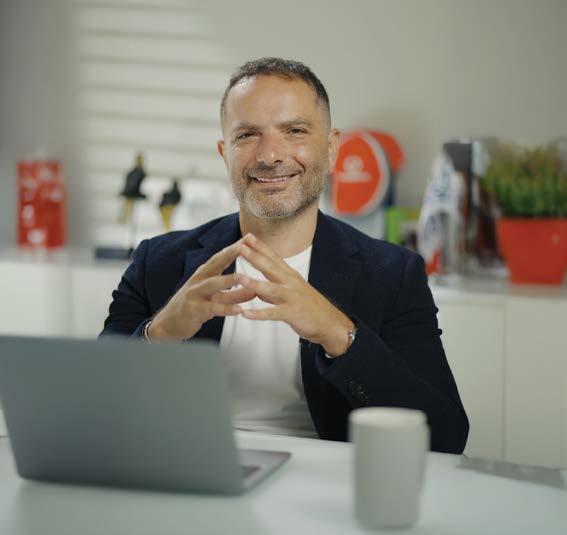
Wassim Hassanieh is the founder of Lebanon-born startups
CloudTaktiks and Magnar Systems
It was in 2003 when Wassim Hassanieh’s journey into the world of tech began with SAP, the global leader in enterprise software that helps organizations manage core business processes through integrated digital solutions. Soon after, Hassanieh launched Procons 4IT, said to be the first company in the Middle East dedicated to delivering SAP solutions to small and medium-sized enterprises (SMEs). However, by 2008, he noticed a particular change: the global enterprise resource planning (ERP) was
shifting towards cloud technologies. Observing this change in direction eventually led to the launch of his next startup, CloudTaktiks. “SAP having more than 50,000 SME clients globally running their ERP on premise triggered the idea of Cloudtaktiks– a company that focuses on creating the right cloud infrastructure for SAP SME clients to run their ERP on cloud in an affordable, secure environment while maintaining the right performance,” Hassanieh explains. “Moreover, after the acquisition of Procons 4IT in 2018 by a major
Spanish group, I diverted focus to create Cloudtaktiks which is now a leading cloud-based company helping the SAP SME clients to run their ERP on cloud. As we speak we have helped more than 700 SAP clients in more than 37 countries benefit from Cloudtaktiks to run their SAP solutions on cloud.”
Hassnieh explains that in its early days, CloudTaktiks concentrated on hiring the right talent and adopting the best technology to design an optimized cloud platform. The goal was to provide premium service quality and support while keeping costs attractive. “Having secured the latter, we started a channel-based sales strategy, where we connected with top SAP partners globally and offered our premium cloud solutions that were sure to be a win-win collaboration,” he explains. “This led us to secure agreements with top SAP Value added resellers in Asia Pacific, Europe, Middle East and Africa. We have also now started a nice traction with partners in Latin America through our first office in Costa Rica. I do believe in channel business and this is the fastest way to expand into different markets.”
In 2018, having worked with SAP for a period of 15 years already, and also running his first startup Procons-4IT, Hassanieh noticed another major business gap– this time in the Human Capital Management (HCM) software market. “HCM solutions are either huge, complex, expensive, and take ages to implement, or they are small solutions or add-ons that lack major
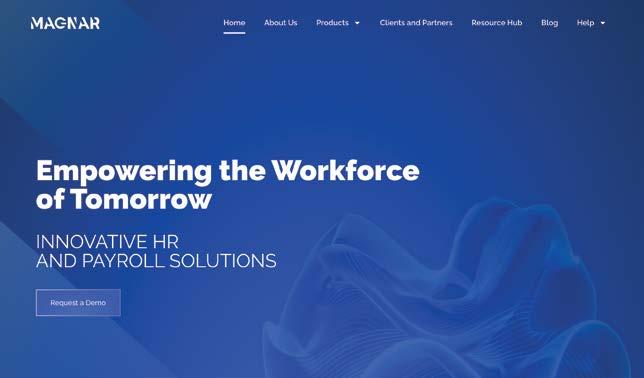
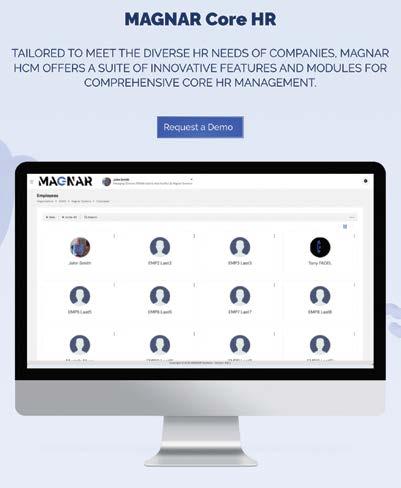
functionality and suffer from performance, compliance, and security issues,” he laments.
“Inspired by the acquisition of SuccessFactors [a Silicon Valley-based cloud-based HCM company] by SAP in 2011, I had the idea of building an HCM platform that would be rich in function-
ality while reducing complexity and cost. This dream came true in 2018 when I launched Magnar Systems. The journey began with finding the right talent who shared the same passion and belief in the end result. It wasn’t easy, but we managed to launch the first version of the product in 2021 during COVID-19, and since then we have never stopped enhancing the solution— especially after seeing the strong market acceptance. In less than four years, Magnar has been adopted by more than 300 clients across 26 countries in Africa, the Middle East, and Latin America. I am very proud of what we have achieved, and I strongly believe Magnar HCM has an amazing future and a global presence ahead.”
Having ventured into the world of human resource management (HRM), Hassanieh offers insights
"Change management is not easy, and the appetite to invest in digitalizing HR has always been a challenge. Most companies are still relying on manual processes and Excel, which shifts the workload to administrative tasks rather than focusing on enhancing policies, employee wellbeing, talent retention, proper recruiting, and engagement.”
on what he believes are major hurdles for businesses in the region.
“MENA HRM still struggles with a lot of changing rules and regulations; labor laws are changing continuously,” he
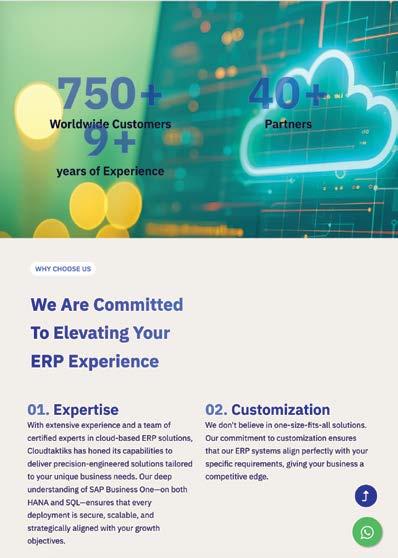
IN LESS THAN FOUR YEARS, MAGNAR HAS BEEN ADOPTED BY MORE THAN 300 CLIENTS ACROSS 26 COUNTRIES IN AFRICA, THE MIDDLE EAST, AND LATIN AMERICA. I AM VERY PROUD OF WHAT WE HAVE ACHIEVED, AND I STRONGLY BELIEVE MAGNAR HCM HAS AN AMAZING FUTURE AND A GLOBAL PRESENCE AHEAD.”
says. “Change management is not easy, and the appetite to invest in digitalizing HR has always been a challenge. Most companies are still relying on manual processes and Excel, which shifts the workload to administrative tasks rather than focusing on enhancing policies, employee wellbeing, talent retention, proper recruiting, and engagement. I do not believe change itself is difficult, but we need to provide proper solutions that integrate with government portals, tax authorities, and banks. In addition, we must reduce the complexity and cost associated with HR solutions to overcome these challenges and drive real change.”
As such, Hassanieh has taken it upon himself to thus directly tackle the issues of costly, complex, and outdated HR processes by creating Magnar Systems as an HCM platform that is affordable, easy to implement, and locally adaptable.
“Over the next 3–5 years, Magnar will evolve from an “HCM suite” into a global people-ops platform,” he shares “Our focus will be on embedding artificial intelligence (AI) into every process across the system. We are investing heavily in user experience and mobile apps to boost employee engagement, while also making HR digital transformation affordable for all companies by reducing complexity, adding more localizations, and ensuring faster implementation times. We plan to continue expanding our presence in
the GCC and Levant regions, while also accelerating growth in Africa—particularly in Uganda, Kenya, and Nigeria—and strengthening our footprint in Latin and Central America through our office in Costa Rica.”
But as much as Hassanieh has been a proponent for the wider use of AI, the serial tech entrepreneur has also, repeatedly, warned against treating AI as a mere buzzword. Instead, he has advocated for it to address real-world challenges at scale while ensuring strong governance and robust security. “AI is a topic spreading across all industries– however, most CEOs and decision-makers want to be part of this AI revolution but often don’t know why or how to start,” he says. “I strongly believe that AI should be introduced to organizations to solve problems, increase efficiency, and reduce costs. AI is not one-size-fits-all for every industry, and we are beginning to see different AI solutions tailored to specific sectors. While basic AI tools like chatbots can be used across industries, specialized AI solutions are emerging that address industry-specific needs—for example, AI in production companies differs from AI in service-based companies. As a cloud infrastructure provider, we help our clients deploy the right AI infrastructure, enabling them to use ready-made AI agents or build their own to support their business. In our HR offerings, we have
embedded AI tools that reduce effort in talent management and recruitment, while also minimizing errors in financial and payroll calculations.”
This focus on building the right team and infrastructure is in many ways a reflection of Hassanieh’s approach to AI adoption. Just as careful attention is given to attracting and retaining talent to drive growth, the founder believes equal emphasis must be placed on implementing AI tools and cloud infrastructure that deliver tangible value and address real business challenges.
“One of the biggest challenges [of my entrepreneurial career] has been finding the right talent,” he says. “In a market like the Middle East, attracting and retaining skilled professionals—especially for a startup—can be difficult. Many people prefer to join larger multinational organizations, so one solution I implemented was offering free equity to key team members, which fostered loyalty and passion to help grow the business. Another major challenge was navigating compliance and geopolitical changes in the region over the past decade. To address this, we strategically expanded geographically, reducing the risk of being limited to a single market, while ensuring compliance requirements were met to support smooth expansion.”
As Hassanieh continues to focus his attention on furthering both CloudTak-
tiks and Magnar Systems’ presence in Lebanon and the wider region, the founder notes how visionary initiatives in countries like the UAE and Saudi Arabia have set the pace for regional digital transformation. As for his homeland Lebanon,
Hassanieh says that while it still faces challenges in infrastructure and policy, it is the local talent and strategic support that will drive meaningful change moving forward. “Since 2006, I have observed a major shift in the region

toward adopting technology,” he says. “The UAE has led this digital transformation, particularly in the public sector, with a clear vision, followed later by Saudi Arabia through its 2030 Vision, which has driven significant technological advancement across the kingdom. Other countries in the region still have a long way to go. I believe Lebanese talent has played a crucial role in the region’s digital transformation, and I have consistently relied on Lebanese professionals in all my ventures, which has contributed greatly to our regional and global success. As for Lebanon itself, while it has excellent talent, it still lacks the infrastructure, government policies, and strategic vision needed to fully embrace a digital ecosystem. I hope to see changes soon, as the country has tremendous potential to capitalize on this wave of transformation!”
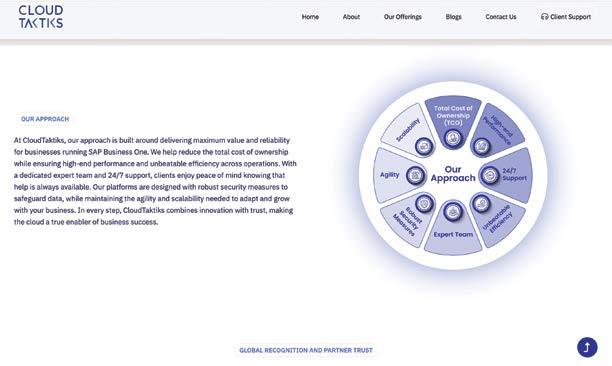
The ambitious vision of Mila Smart Semeshkina, founder of Lectera and the Women's Empowerment Council - 50 million learners, one million women.
by TAMARA PUPIC

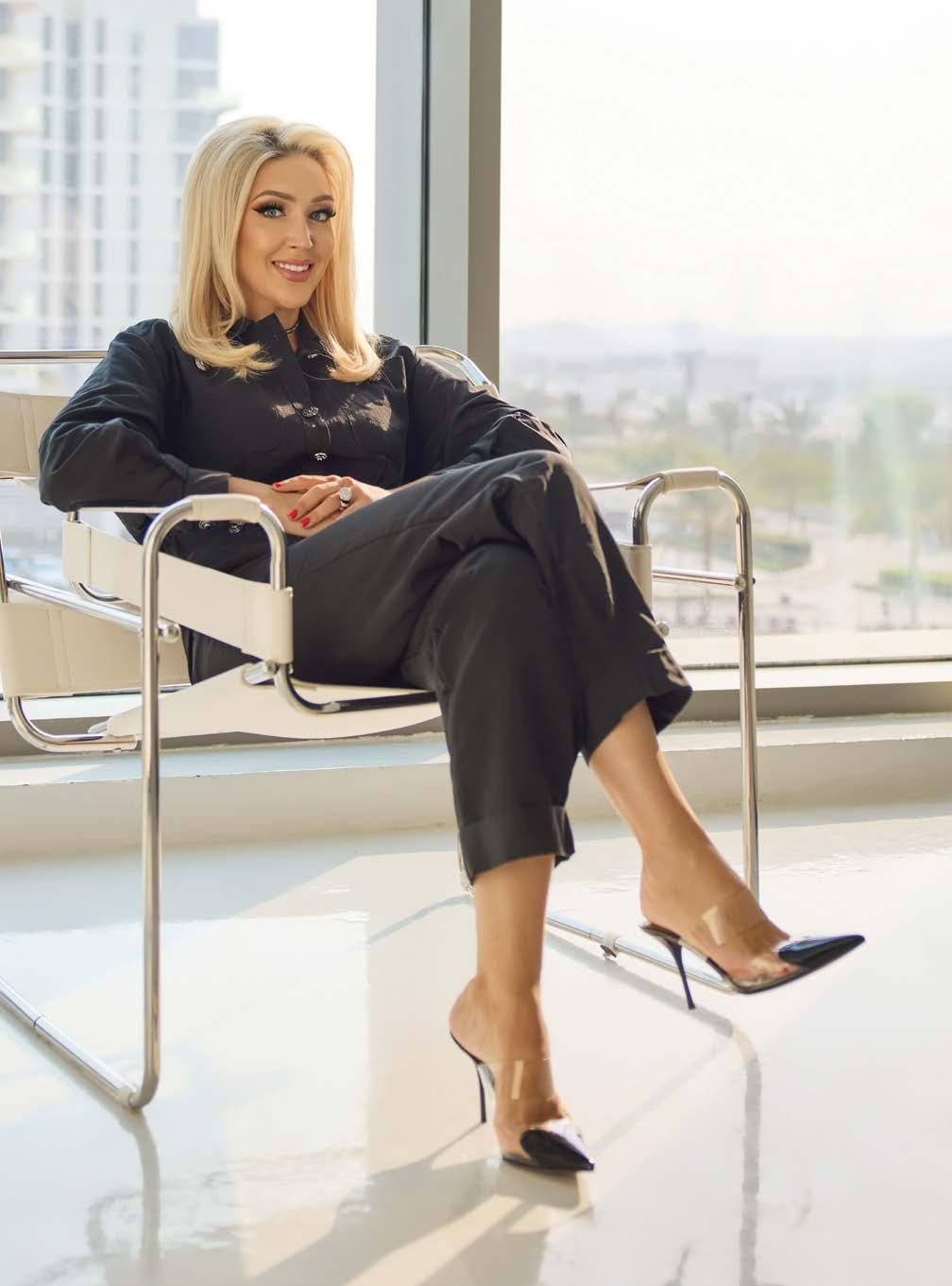

Scale matters: the more visible we are, the louder women's voices become in business, and the more women are recognized as successful, strong, and powerful.”
The rapid rise of Mila Smart Semeshkina, founder of the international learning platform Lectera and the global community Women's Empowerment Council (WE Council), is more than just a growth story—it is a testament to conviction, clarity of vision, and the discipline to execute at scale without compromise.
In just a few years, Lectera has approached eight million users, with more than one million learners active on the platform each day—figures that position it among the leading players in the education technology space. The WE Council has also achieved notable growth, most evident through the third Women's Empowerment Convention (WE Convention), taking place at the Atlantis the Royal in Dubai on November 1-2, 2025. It will feature Dame Anna Wintour, American author Candace Bushnell, Director General of Dubai Culture and Arts Authority H.E. Hala Badri, and many others. "Scale matters: the more visible we are, the louder women's voices become in business, and the more women are recognized as successful, strong, and powerful,” Semeshkina says.
Her words are reflected in action, with plans for one online and two in-person WE Convention events in 2026. "The growth validates our approach,” Semeshkina says. "Seeing lives change around us confirms the effort is worthwhile. Our core team has remained largely intact while adding several key players, becoming stronger without sacrificing quality.”
It is with this purpose in mind that the organization is expanding its initiatives, including launching WE Magazine alongside dedicated digital media platforms to provide women with greater opportunities to share their stories and achievements. "In the
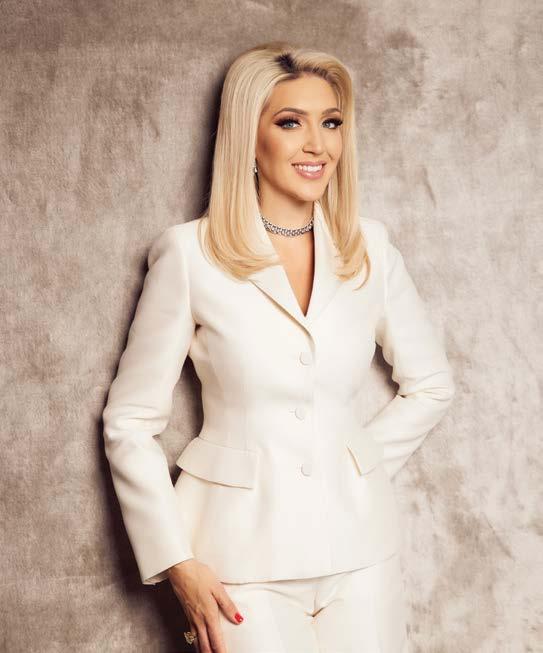
→ Semeshkina reveals that the publications of WE Council have generated over 800 million views, nearly one billion, over the last two years.
THE WE CONVENTION AND WE COUNCIL ARE EXTENSIONS OF ME, THE MANIFESTATIONS OF MY ENERGY, AND FOR THAT ENERGY TO STRENGTHEN, I MUST BE IN CONSTANT DEVELOPMENT.”
past two years, our publications have generated over 800 million views, nearly one billion,” says Semeshkina."We haven't compiled 2025 figures yet, but I believe we've already exceeded a total of one billion impressions. That's why we're expanding."
She adds, "My role is to provide a platform for ever more women. We’re increasing the number of forums next year and launching additional media so successful women can serve as beacons, as guiding stars for others, lighting the way and demonstrating that success is achievable through
different strategies and formulas.”
The measured and sustained expansion of her enterprises parallels Semeshkina's unwavering commitment to self-development. "The WE Convention and WE Council are an extension of me, the manifestations of my energy, and for that energy to strengthen, I must be in constant development,” she explains. Her personal growth routine includes a development plan across languages, books business directions, sports and fitness activities. "I don't go to sleep unless I've done the work,” she says. "One of my life rules is 'to be, not to }}
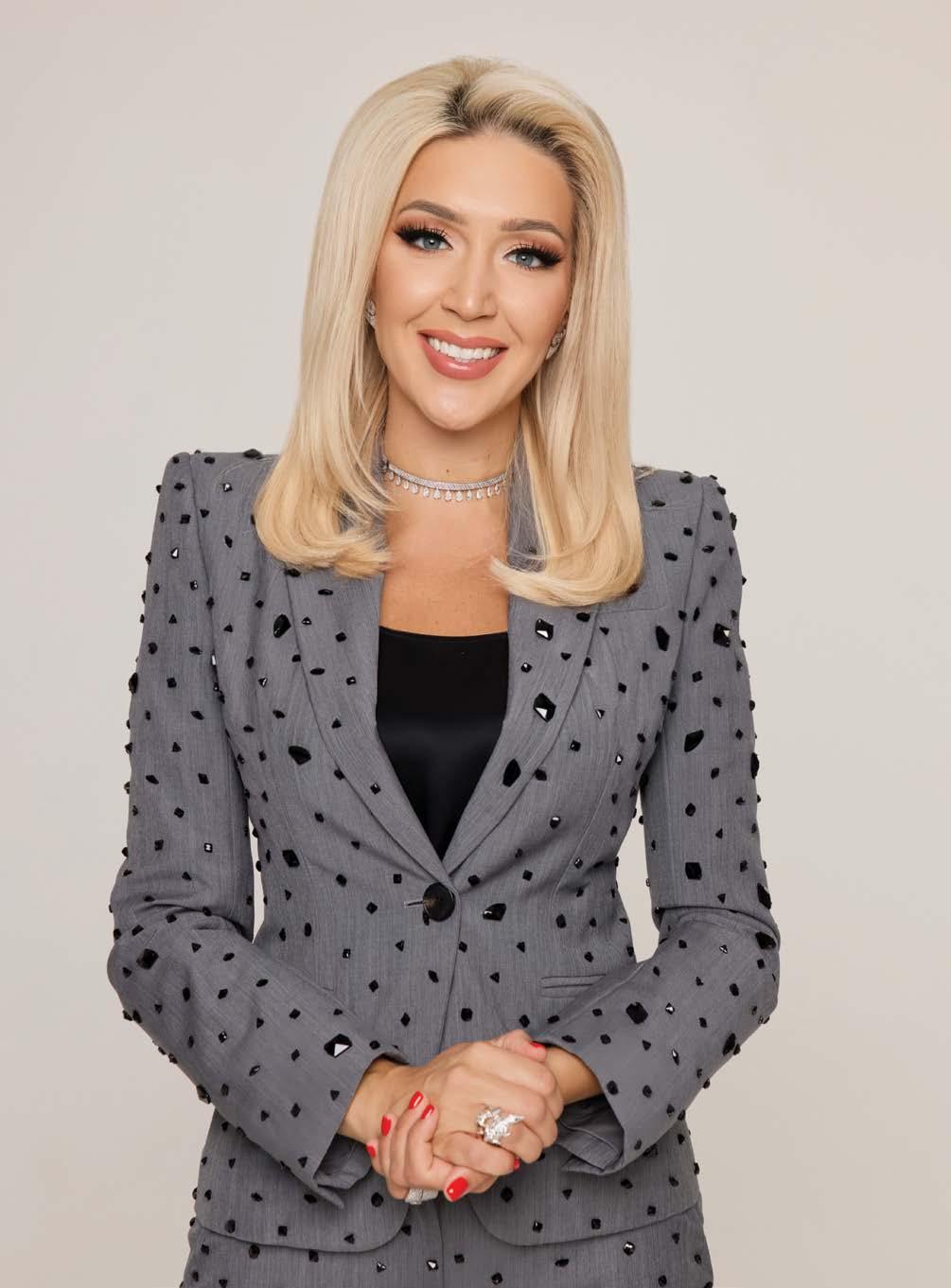
I don't go to sleep unless I've done the work. One of my life rules is 'to embody, and not perform'. If I'm going to teach women and serve as a beacon for them, I must constantly cultivate my own light, strengthen and amplify it.” “
seem.’ If I'm going to teach women and serve as a beacon for them, I must constantly cultivate my own light, strengthen and amplify it.”
Her capacity to expand in both personal and professional spheres without losing focus, she notes, stems from three guiding principles. "First, I maintain a crystal-clear vision of where I want to end up. I know my big goals and my smaller near-term
Mila Smart Semeshkina advises women about stepping into their power
}"During my time in Dubai, I've watched the business landscape transform. More women are entering business, becoming successful, and expanding their capabilities. This momentum will only accelerate. A successful, wealthy, beautiful, happy woman will become the absolute norm. The glass ceiling will finally shatter completely. Women simply need to believe in themselves and their abilities as much as possible. They need to understand that there are no limitations and that success is inevitable. I absolutely believe in women. I see their incredible strength and energy. But here's what women need to remember: when we talk about feminine strength, it's not about being a small kitten who's merely cute or pretty.
"Feminine strength is a powerful, enormous dragon that can either warm with its heat or burn everything in its path. Women need to understand they possess this incredible, fundamental natural force. They just need to use it correctly, for their own good and for others.
"I said during the WE Convention in 2024, 'I am a woman, and I can do anything.' That's the truth. Every day I become more convinced of this reality. My dear women, remember: You are women, therefore you can do anything. Everything."
objectives. I teach this especially to women, and it's the subject of my third book: you have to protect your focus. I play the long game, always keeping serious long-term objectives alongside short-term steps,” Semeshkina explains. "The second element is staying power—what I call 'long will.' When you know why your work matters and accept that success requires a million small steps, you simply take them day after day until those million steps are complete. The third is discipline: a clear, strict discipline of daily self-improvement. These principles let me concentrate on what matters and live within my big, long-term goals without losing focus.”
With access to influential thinkers and world leaders, Semeshkina has had the opportunity to engage in conversations that many would consider transformative. While she emphasizes that her personal growth has been largely self-driven rather than shaped by these interactions, several distinct insights have nonetheless emerged. "A woman can truly do everything, and she can be effective and efficient in absolutely any role,” Semeshkina says. “Then, the most difficult life situations create the greatest leaders. Steel is forged at high temperatures under serious pressure. A para-athlete I met shared a phrase that stayed with me, 'I can't" is a lie. You can. Get up and do it.’"
Plus, she underscores the benefits of engaging with a community of achievers. "What I've observed is that successful women share their success with other women with tremendous enthusiasm and internal drive,” Semeshkina says. “Also, positively charged people powerfully influence everything around them. Successful women change society by becoming beacons that help others believe in themselves. The more brightly shining beacons we have, the better.”
Recognizing and valuing growth both in herself and in others, she applies the same perspective to the world
around her, including Dubai where she relocated to in 2018. "The Dubai I arrived in back in 2018 and the Dubai of today feel like two different cities in strength, speed, quality, and scale,” Semeshkina says. "The population has grown and so has its caliber, with a steady influx of top talent from around the world. As conditions have become more complex in some former economic centers, more serious entrepreneurs and experts are choosing Dubai. Quality of life keeps rising, and opportunities for business and self-realization are multiplying."
Semeshkina believes that Dubai is on track to become a global economic and financial center. "Policy is a major enabler,” she says. "Social and economic policies actively support growth, and even government processes run on blockchain, letting you resolve issues in days or sometimes hours that would take weeks elsewhere. For example, obtaining residency takes around seven working days.”
Her next objective is ambitious: to accomplish in a single year what previously required three. "You can't keep goals at the same level; at minimum, we double them, and sometimes triple them,” Semeshkina says. "Next year, I plan indeed to triple our goals, tasks, and complexity for both myself and the team. We'll hold three forums, triple the workload and triple the challenge but we'll handle it. Otherwise, we can't scale the WE Council activities effectively.
She adds, "As a team, we operate outside our comfort zone, and that's precisely why we grow so rapidly. These challenges elevate us daily. Each time we reach a new summit, the team reflects, 'We thought that was impossible.' It's powerful to prove to yourself that everything is achievable and to realize how much untapped potential remains. And it is one of my key responsibilities to
unlock people's potential and that's what we accomplish together with my team every day.”
Looking ahead, Lectera is set to pursue continued expansion, leveraging advanced AI capabilities to broaden its reach, develop innovative courses, and extend knowledge sharing on a global scale. By 2030, the platform aims to have trained 50 million learners, underscoring its long-term commitment to accessible education. In parallel, the Women’s Empowerment Council is envisioned to grow into a movement of one million members worldwide. "But let's talk about something more meaningful than numbers,” Semeshkina points out. "We’re going to change the lives of a million women. We'll give them faith in themselves, help them believe in their strength and capabilities, and enable a million women leaders to become stronger, more powerful, and shine brighter."
We’re increasing the number of forums next year and launching WE Magazine, so successful women can serve as beacons, as guiding stars for others, lighting the way and demonstrating that success is achievable through different strategies and formulas.” “

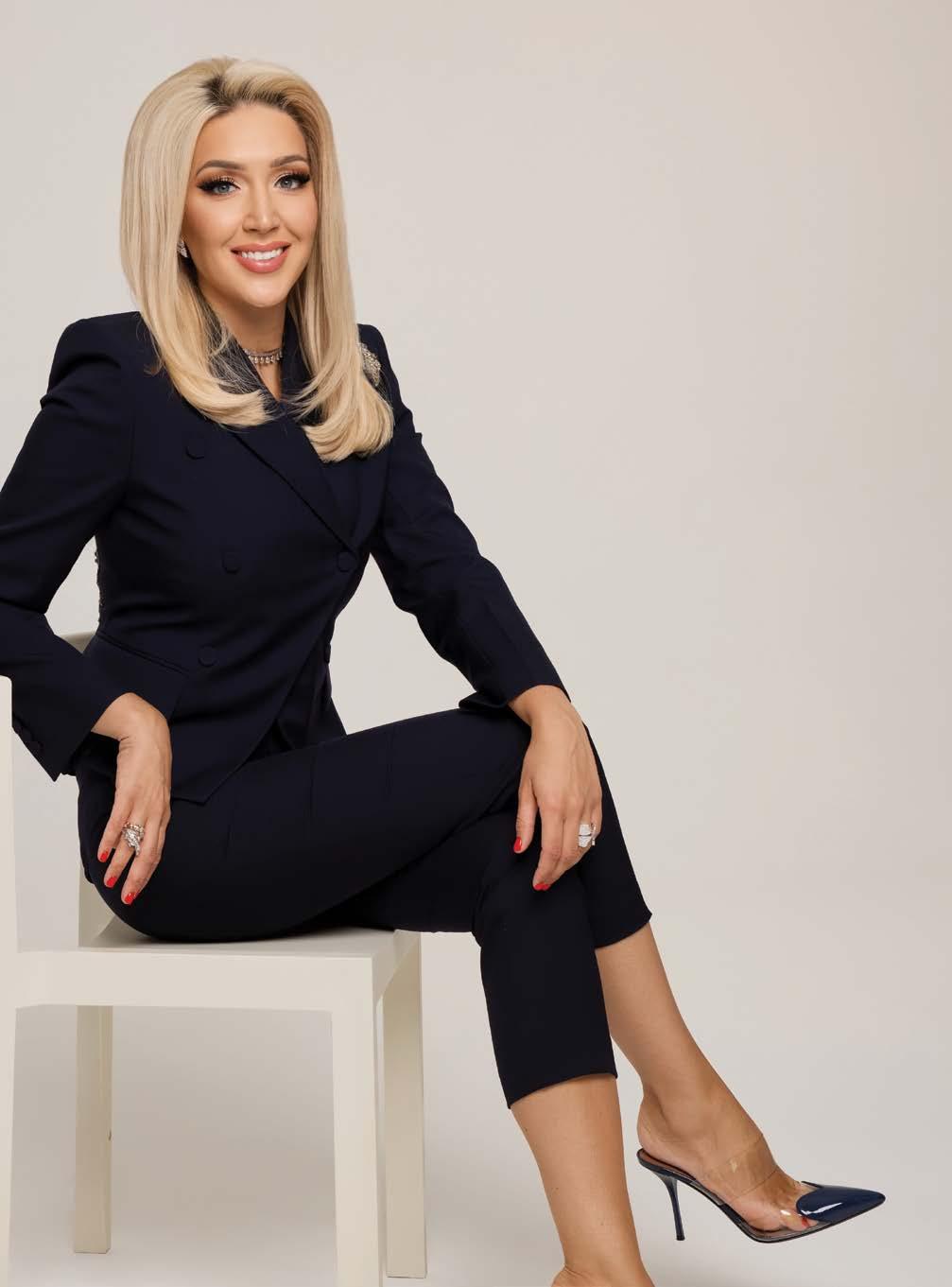
“We’re going to change the lives of a million women. We'll give them faith in themselves, help them believe in their strength and capabilities, and enable a million women leaders to become stronger, more powerful, and shine brighter.”

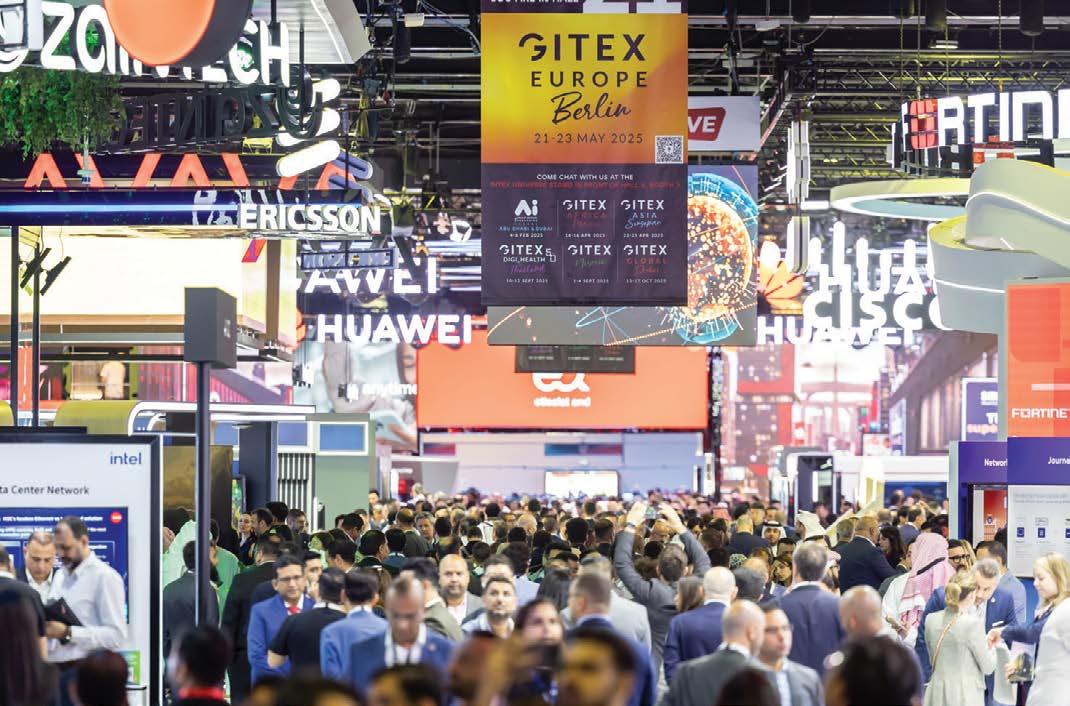

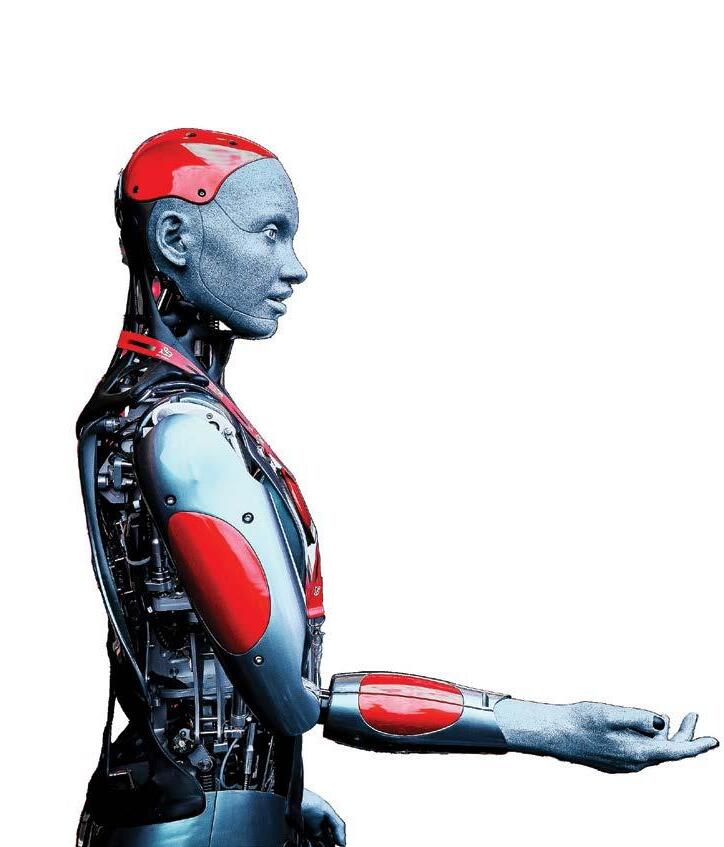

The Tech Innovation Forum 2025, staged by BNC Publishing with the support of in5 Dubai and Virtuzone, gathered trailblazing entrepreneurs and innovators to showcase how they transformed business, society, and everyday life in the MENA region and beyond.

Entrepreneurs and Investors Redefining Business and Society
INSIGHTS FROM THE TECH INNOVATION FORUM 2025 BY ENTREPRENEUR MIDDLE EAST ON THE TANGIBLE IMPACT OF BOLD IDEAS AND INNOVATIONS.

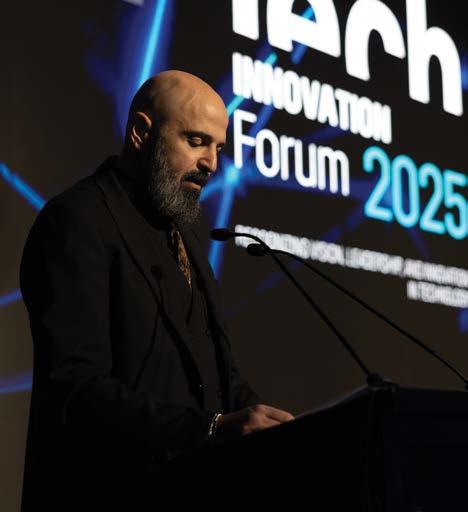
The event held at Al Habtoor Palace Dubai on September 25, 2025, opened with a welcome address by Wissam Younane, Founder and CEO of BNC Publishing. Over the past 12 years, Younane has steered the company through trials and tribulations, building it into a leading regional voice for entrepreneurship and innovation. His remarks set the tone for the day, highlighting both the resilience required to navigate challenges and the vision needed to propel ideas to new heights.
"Entrepreneurs in the UAE stand at the crossroads of innovation and opportunity," Younane said. "This country—and the nation it represents—has shown the world how vision, courage, and long-term planning can transform even the boldest ambitions into reality. My message to every founder here today is to take inspiration from the UAE's own story: do not shy away from challenges, but use them as stepping stones to growth. If you align your dreams with the forward momentum of this country, you will not only thrive personally but also help shape the next chapter of our region's legacy."
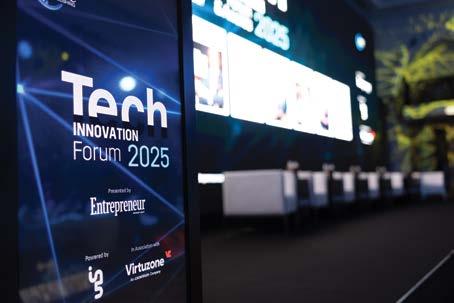
Wissam Younane CEO, BNC PUBLISHING

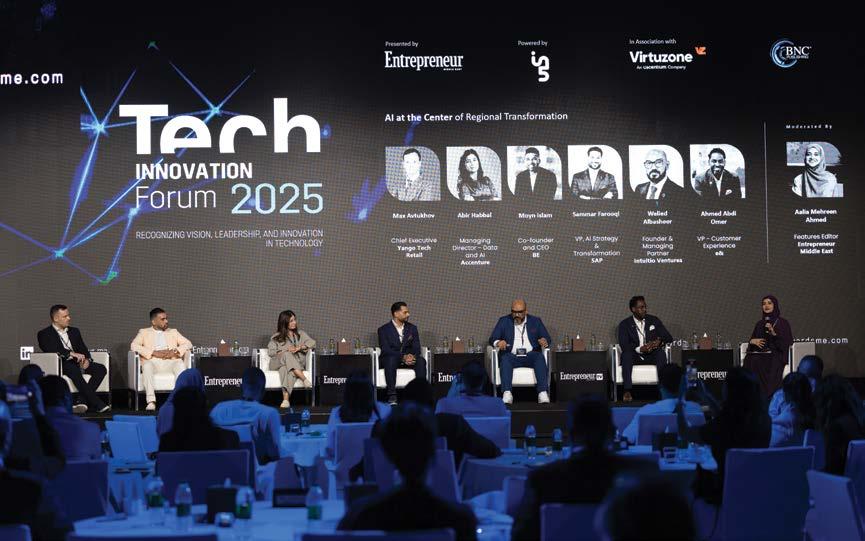
Featuring Max Avtukhov, Chief Executive, Yango Tech Retail; Abir Habbal, Managing Director - Data and AI, Accenture; Moyn Islam, cofounder and CEO, BE; Sammar Farooqi, VP, AI Strategy & Transformation, SAP; Walied Albasheer, founder and Managing Partner, Intuitio Ventures, and Ahmed Abdi Omer, VP - Customer Experience, e& Enterprise. Moderated by Entrepreneur Middle East Features Editor Aalia Mehreen Ahmed, the opening panel of the Tech Innovation Forum examined the transformative role of AI in businesses across the UAE and the wider Middle East region. The discussion centered largely on AI's potential, adoption, and pace of change, highlighting real-world applications, challenges, and opportunities from multiple industries.
Speakers agreed that AI's most visible impact over the past 12–18 months has been in customer experience and hyper-personalisation. "I think the most important evolution we've seen is the shift from untailored mass communication to personalized consumer experiences across the

entire journey," said e& Enterprise's Omer. "From the moment a brand announces its products and places them in the awareness stage of the consumer journey, you begin to notice differences in how each customer discovers and engages with them. I think the most important evolution we've seen is the shift from untailored mass communication to personalized consumer experiences across the entire journey. From the moment a brand announces its products and places them in the awareness stage of the consumer journey, you begin to notice differences in how each customer discovers and engages with them."
SAP's Farooqi then went on to make an important revelation about the oftquoted claim that "95% of AI projects fail." His argument was that this statistic is misleading when taken at face value. "In my view, that definition is far too narrow," he said, "Business value is not just about profit and loss—it also includes metrics like time to market, data utilization, customer satisfaction, and efficiency gains within processes. These outcomes may not always be immediately
quantifiable, but they are real and significant. For example, if you implement a generative AI tool or chatbot to handle customer queries or accounts payable, you can reduce service time by 70%. That doesn't just improve efficiency—it enhances customer satisfaction and frees employees to focus on more strategic tasks. Those benefits matter just as much as direct financial results.
The key is that AI projects should be auditable end to end. Beyond accuracy, we need to ask: is it being used effectively? Is it delivering value? Adoption, customer experience, and the acceptance of new processes are all critical success factors."
On her part, Accenture's Habbal emphasized that adopting AI is not about a single function or department, but about rethinking the entire organization's approach to transformation. "In the long term, the challenge is making sure everyone becomes part of the transformation," she said. "AI is not confined to an "AI team"; it should be embedded across the organization. That means building a strong enterprise knowledge framework and giving employees access to AI agents that understand the business, empowering them to create their own use cases. Success isn't just about launching accurate pilots—it's about driving adoption so employees and customers genuinely benefit."
From the enterprise perspective, the panelists stressed measurable business value. Success, they argued, should not be judged by profit alone but also by adoption, customer satisfaction, employee productivity, and long-term cultural shifts. The panel also emphasized ethical
use and governance."Over my 30-year career in data science, I've come to view AI as infrastructure and data as an asset class," Intuitio Ventures' Albasheer noted. "Everything else in between simply serves or fuels these two pillars. But there's a challenge ahead: by 2027, most publicly available data will be exhausted.
said. "Most AI models are still statistical in nature, which makes biased or incorrect outputs a real risk.

At that point, meeting the growing appetite for data may force us into a cycle of generating and relying heavily on synthetic data— and that raises serious questions. This is why urgency and responsibility are so important…We need to look beyond "chat models" and focus on deeper, more sustainable applications of AI."
Leadership must therefore establish clear guardrails, checkpoints, and validation mechanisms—ensuring that outputs are tested and corrected before being used. These are technical challenges, but they have very real implications. Leaders must understand them fully if AI is to be applied responsibly."
Finally, workforce readiness
keep making improvements. By contrast, if you invest in companies that build a strong foundation and give employees the tools to innovate, you're making the right long-term choice.
On top of that, you tap into innovation from within your workforce, because employees are empowered to be more creative with how they use AI."
On his part, Yango Tech Retail's Avtukhov added that he believed in "both carrot and stick" in this regard. "On
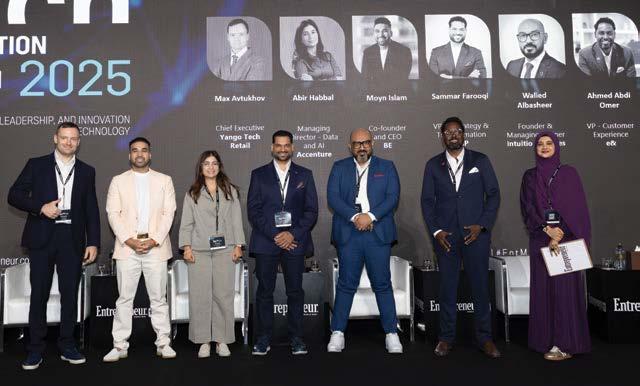
Albasheer added that with adoption accelerating, transparency, security, and accountability are crucial— especially in sensitive areas like healthcare. "Today, concerns like data sovereignty, national security, and critical applications in transport or defense demand strict internal safeguards," he
emerged as a pressing issue, with shortages of skilled practitioners and generational gaps slowing adoption."With DeepSage, we use our own platform to provide more comprehensive services to existing customers and to help them build trading strategies. At the same time, we use it internally to train AI agents for our employees, instead of relying on third-party providers," said BE's Islam.
"Many AI companies can offer solutions to improve customer service, and while those may work for now, they don't train teams to
the carrot side, you need to change hiring procedures," he noted. "For example, in the product department, don't just hire someone who isn't adaptable—bring in younger talent. They might lack certain specific skills, but they are more AI-native. And start with yourself: if you automate something with AI, then encourage the people around you to do the same.
On the stick side, introduce positive constraints. For instance, in the marketing department, stop hiring for a year—this will push the team to innovate faster and find new ways to work."
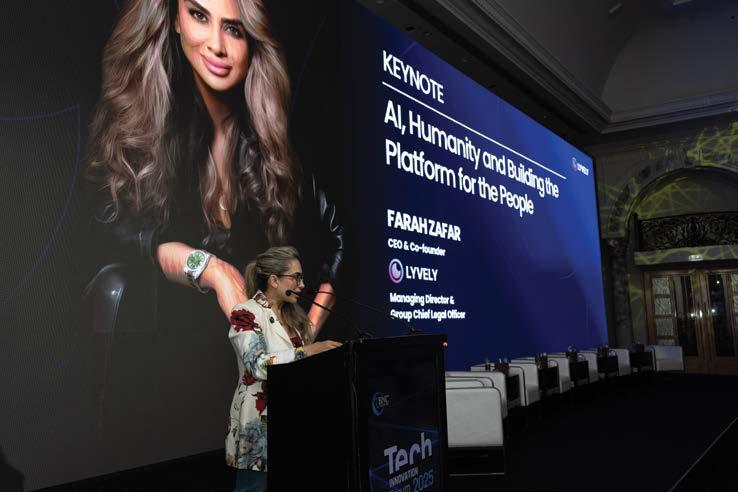

One of the highlights of the Tech Innovation Forum 2025 was the keynote by Farah Zafar, co-founder and CEO of the social networking and content monetization platform Lyvely, as well as Managing Director and Group Chief Legal Officer of Abu Dhabi-based Phoenix Group, a global leader in cryptocurrency mining and blockchain. With her unique perspective at the intersection of technology, law, and entrepreneurship, Zafar revealed why the greatest advantage in this age is not data, or algorithms, or AI, but the unstoppable power of being human.
"When we started Lyvely, we weren't some Silicon Valley tech founders with huge backers, it was literally just the two of us—myself and my amazing co-founder Dave. We had nothing but grit, vision, and a dream to build a movement to empower the youth," Zafar said. "A place where creators, professionals, and the gig economy could finally own their voices, monetize their content, and take control of their digital presence, but with core values
of humanity, authenticity, community and empowerment.
"Our development of Lyvely predates AI, but over the last few months, we've had to face the reality that AI isn't just a tool—it's a force that can change the very way we build. We've embraced it, not because it's trendy, but because it makes us sharper, faster, more efficient.
"But here's the line we will never cross: AI will never replace our vision. Lyvely was born to be the platform for the people, not the platform for machines. We use AI only in ways that are authentic, aligned, and true to our DNA. For us, the north star is clear—humanity, authenticity, empowerment, and connection. Because while AI can generate the plan, only people can give it purpose.
"AI only grows on what it is fed. If it is trained on greed, manipulation, and inhumanity, that is what it will amplify. But if we feed it with wisdom, compassion, and humanity, then AI has the potential to become the greatest humanitarian machine ever built. The future of AI will not be written by machines—it will be written by the humanity we choose to put into them."
Sarah Saddouk, Director of Innovation and Strategy at BNC PublishingEntrepreneur Middle East, led an engaging session on innovation in the UAE, where speakers reflected on how the nation has become a true hub of excellence.
Asked to summarize innovation in a single word, the panelists - Adel Alfalasi, Partner and Managing Director - Middle East, KEARNEY; Saeed Alnofeli, Vice President, in5 Dubai; Suneel Gokhale, Co- Founder and General Partner, VentureSouq; George Hojeige, Group CEO,
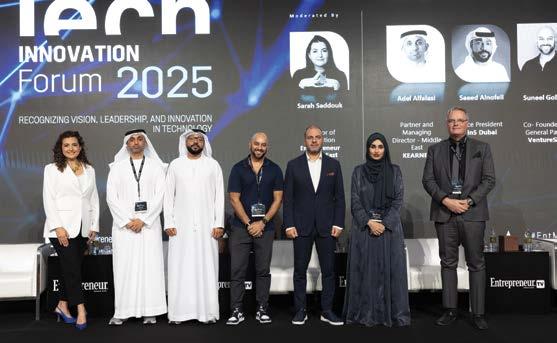

Virtugroup; Khulood Alawadhi, Director of Advanced Technology Services, Moro Hub; and Hans Henrik Christensen, Vice President, Dubai Technology Entrepreneur Campus - overwhelmingly chose "excellence." This captured the country's rapid growth, its embrace of emerging technologies, and its determination to set global benchmarks.
The panelists noted that the UAE government praised for its unusually integrated role in the venture capital and technology ecosystem. Rather than standing back, the UAE government actively contributes by strengthening regulatory frameworks to provide security and stability, and introducing experimental spaces such as fintech sandboxes, enabling startups and corporates to safely test and refine new technologies.
While progress has been strong, Saddouk and the panelists acknowledged the need for more education, investment in research and development (R&D), and resolving funding gaps for startups.
The session closed with the panelists calling for continuous learning, and emphasizing that, while technical skills remain valuable, language proficiency and emotional intelligence (EQ) may prove even more essential for future career success.
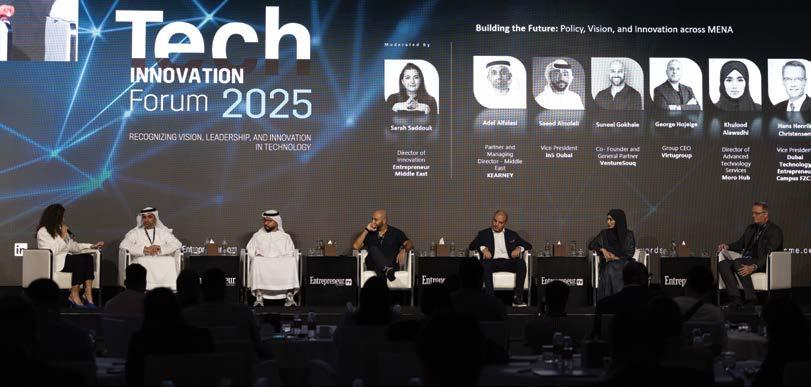
The panel moderated by Tamara Pupic, Managing Editor, Entrepreneur Middle East, which convened leading venture capitalists and entrepreneurs, turned its focus to the realities of the venture ecosystem in the MENA region. While the conversation spanned a range of themes, a central consensus emerged: the ultimate bet is always on the founder. Investors emphasized that capital flows toward conviction in the entrepreneur's clarity of purpose,
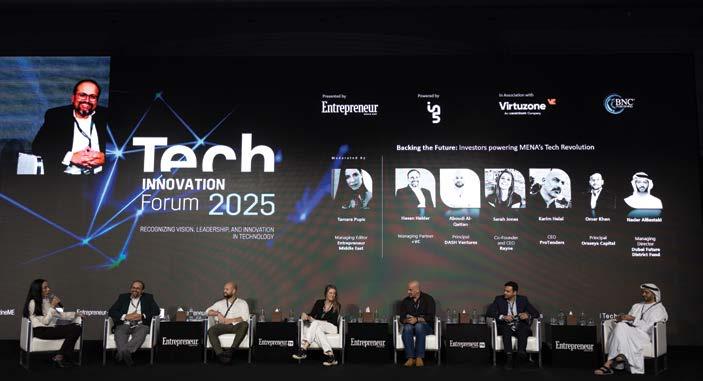
resilience, and ability to execute, rather than toward ideas alone.
A recurring theme throughout the discussion with Hasan Haider, Managing Partner, +VC; Aboudi Al-Qattan, Principal, DASH Ventures; Sarah Jones, co-founder and CEO, Rayne; Karim Helal, CEO, ProTenders; Omar Khan, Principal, Oraseya Capital; and Nader AlBastaki, Managing Director, Dubai Future District Fund, was the importance of clarity and authenticity in leadership. Founders were advised to resist the temptation to rush
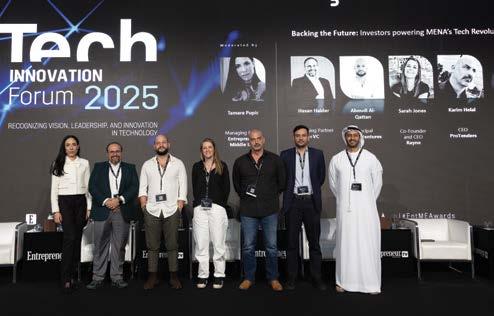

headlong into venture capital opportunities, and instead to apply deliberate discipline in evaluating whether any potential investor can truly advance their long-term vision.
Speakers also cautioned against the growing inclination among some founders to prioritize personal visibility and media presence over the fundamentals of building a sustainable enterprise. While personal branding can serve as an enabler, the panelists argued that it should not eclipse the work of refining a product, winning customers, and scaling operations. The message was clear: enduring companies are built on substance before they can benefit from style.
Perhaps the most pressing piece of advice was directed toward founders in search of investment: be unequivocal about whether genuine productmarket fit has been achieved.
For MENA's venture ecosystem to mature, both entrepreneurs and investors agreed that the balance must tilt toward thoughtful execution, transparent communication, and a steadfast focus on the core of the business.
INNO VA TION 2025 Forum
The very last session of the day was a fireside chat with Muneeb Farrukh, Product Director at Bayut and dubizzle, titled "Reinventing Real Estate: How Bayut & dubizzle Are Changing the Game."
In the discussion moderated by Mina Vucic, Director of Production and Multimedia, BNC Publishing - Entrepreneur TV, Muneeb highlighted how Bayut and dubizzle have grown far beyond simple classifieds platforms to become the digital backbone of real estate and consumer services in the UAE.
According to Muneeb, the platforms' biggest differentiator is their relentless focus on the user. Trust was another key theme in the conversation. Muneeb stressed that in a market as competitive as the UAE, transparency is essential, which is why initiatives like True Broker were launched to raise industry standards and recognize brokers committed to professionalism and ethics.
Looking at the future, Muneeb said one of the most exciting trends is the rise of AI in personalizing real estate journeys
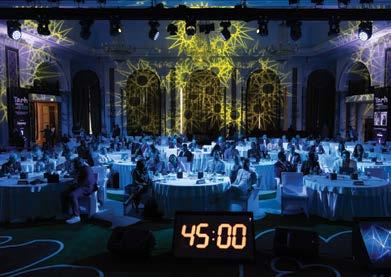
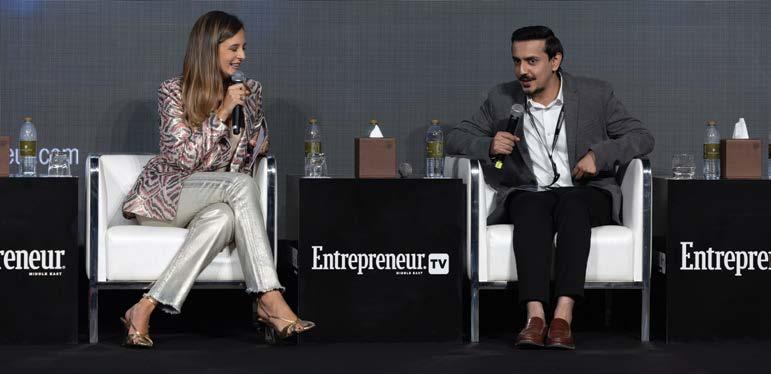
— from smarter recommendations to predictive insights. But alongside technological advances, he emphasized that values like transparency and ethical practices will continue to shape the industry.
Closing the conversation, Muneeb shared advice for aspiring product managers: the single most important skill is curiosity. In his view, curiosity helps product teams uncover hidden opportunities, drive innovation, and adapt in fast-moving industries. Combined with staying true to yourself and believing in your ideas, it's what enables people to create products that don't just serve a need but shape entire markets.


THE RECAP Entrepreneur Middle East's Tech Innovation Awards 2025
© ALL IMAGES COURTESY FAROOQ SALIK/BNC PUBLISHING
The Tech Innovation Awards 2025, staged by BNC Publishing with the support of in5 Dubai and Virtuzone, commended the visionaries and organizations who have reshaped industries and inspired the whole region.
The 2025 edition of the Tech Innovation Awards was staged by BNC Publishing
with the support of in5 Dubai and Virtuzone at Al Habtoor Palace Dubai on September 25,, 2025.
At the awards gala, trailblazing individuals and organizations were celebrated for redefining industries and uplifting the region with their vision.
Here is the complete list of award winners:
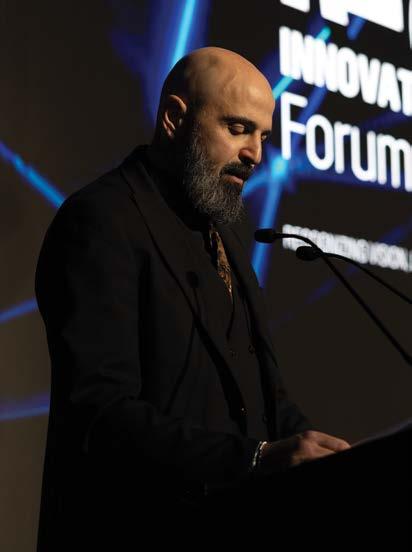
BNC PUBLISHING CEO Wissam Younane
AI INNOVATION OF THE YEAR / E& ENTERPRISE
BEST TRADING SOLUTION / SAGEMASTER
BEST TECH SOLUTION PROVIDER / YANGO TECH
YOUNG ENTREPRENEUR / ALDHABI ALMHEIRI
INNOVATION HUB OF THE YEAR / DUBAI INTERNET CITY
DISRUPTOR OF THE YEAR / PLATFORMANCE
DIGITAL BANK OF THE YEAR / MASHREQ NEO
PR AND COMMUNICATION COMPANY OF THE YEAR / LUNA PR ECOSYSTEM ENABLER OF THE YEAR / IN5 DUBAI
AI DISRUPTOR OF THE YEAR / SAIF BY INTERNATIONAL HOLDING COMPANY
BEST MARKETPLACE / TRENDYOL
MOST INNOVATIVE TECH PLATFORM / CENTURY FINANCIAL
FASTEST GROWTH / TRAININPINK
BEST DIGITAL SOLUTION / ZAINTECH
BEST SECURITY SOLUTION / QUANTUMGATE
TECH LEADING COMPANY OF THE YEAR / VENTUREONE
STARTUP OF THE YEAR / TAKEEM



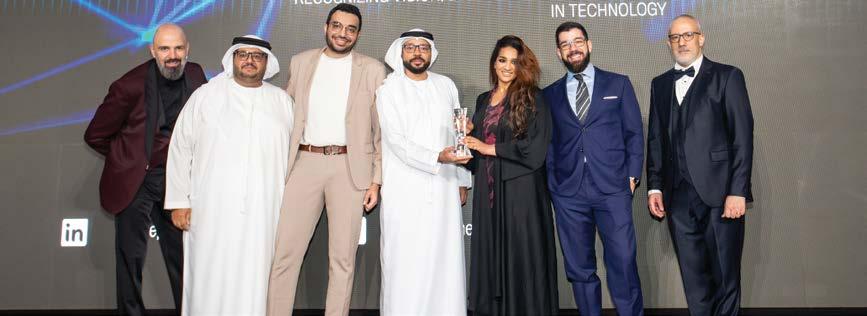
ECOSYSTEM ENABLER OF THE YEAR in5
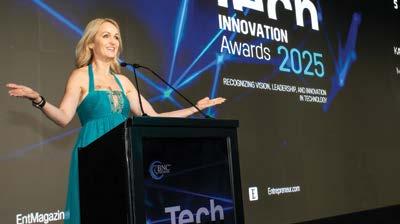
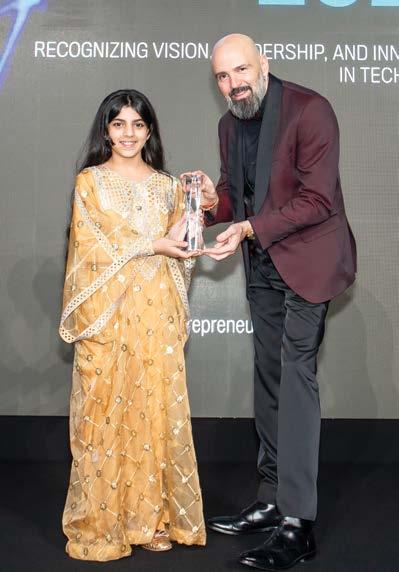
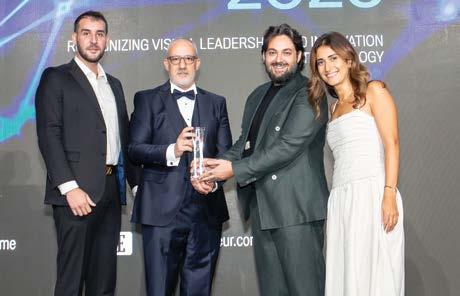
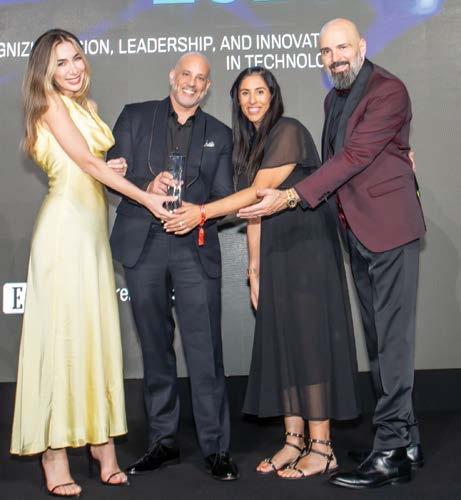
STARTUP OF THE YEAR —

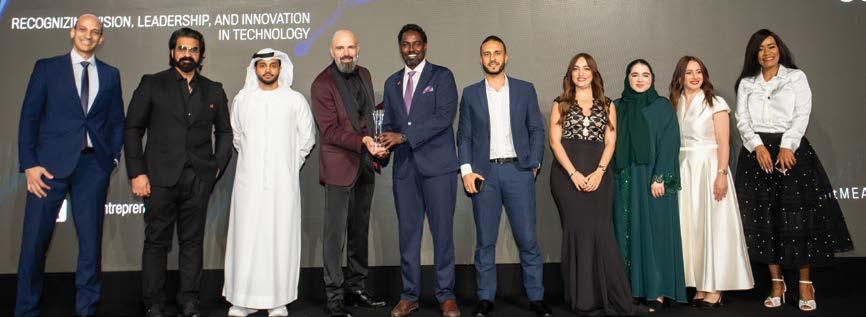
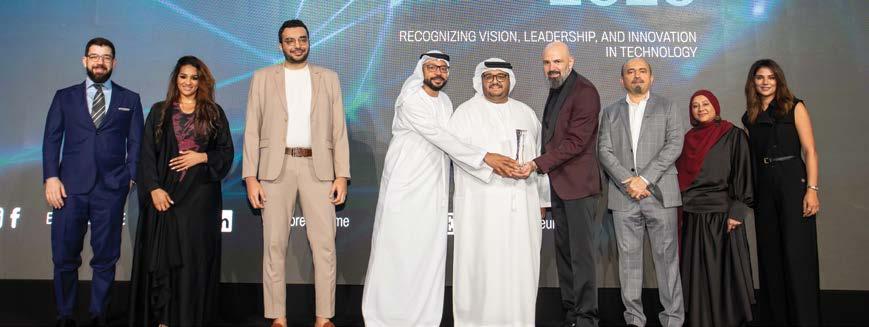
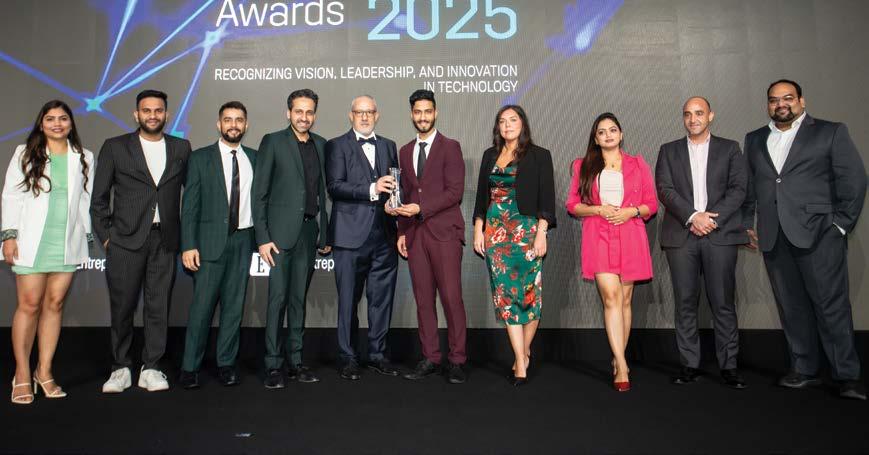
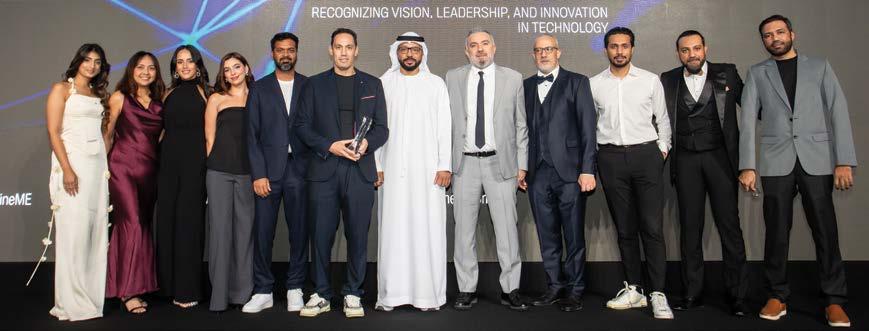
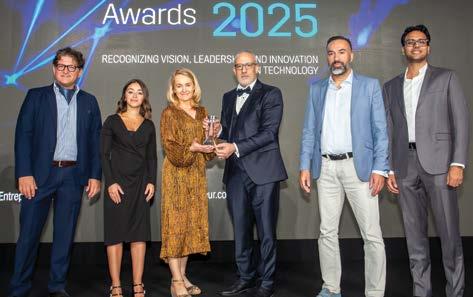
BEST SECURITY SOLUTION — QUANTUMGATE

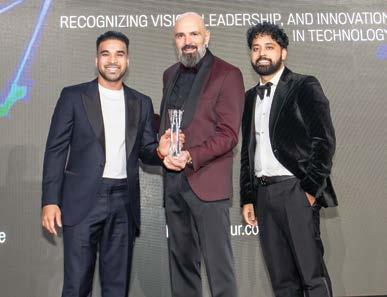
BEST TRADING SOLUTION



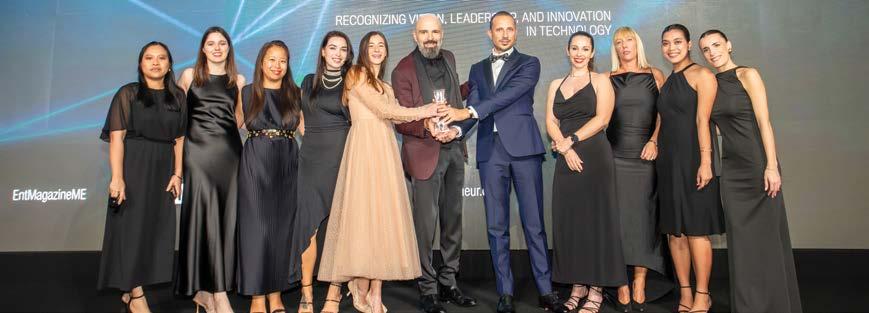
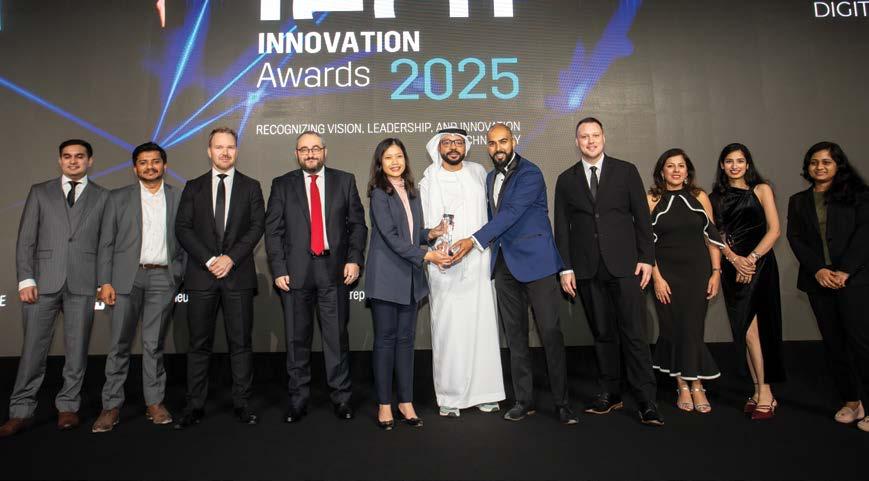
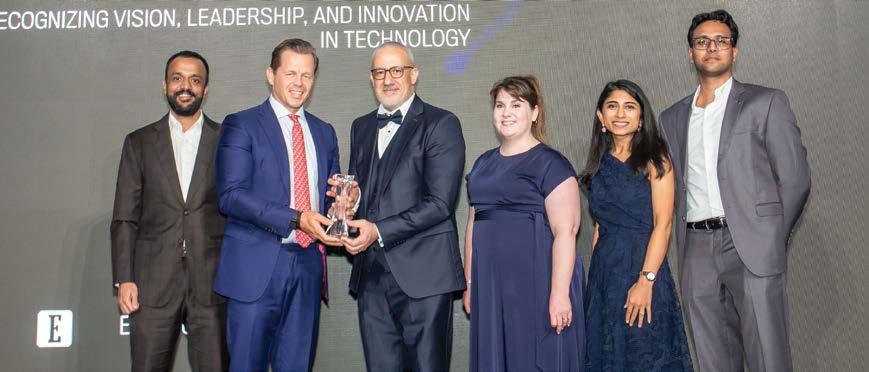
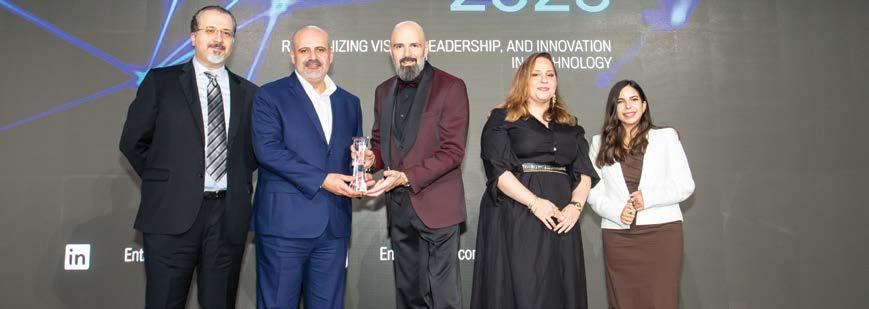
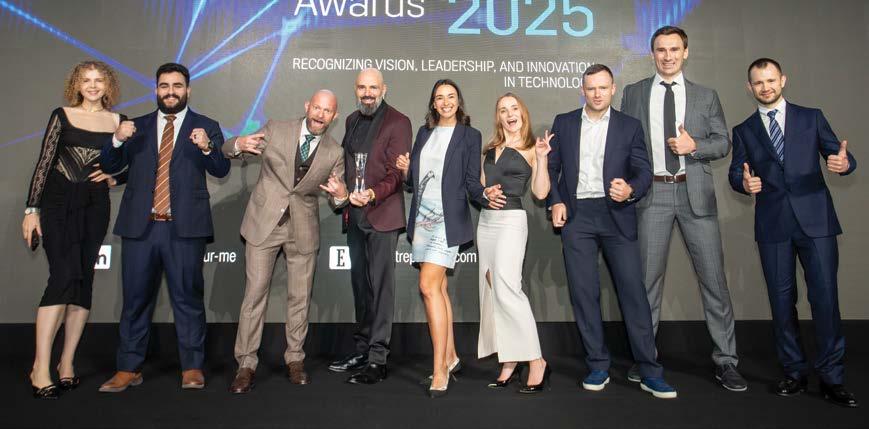




Once focused on delivering core telecommunications services, du has transformed its role into that of a strategic partner for entrepreneurs and SMEs. Today, the company is empowering them to innovate, scale, and thrive.
Gregg Pearce, Head of SoHo and SME Segment at du, explains that, by pairing connectivity with strategic partnerships, mentorship, funding access, and AI-driven solutions, du has positioned itself as a catalyst for digital transformation and entrepreneurship across the UAE. “We have robust partnerships with innovation platforms such as Ignyte, DIFC Innovation Hub, and Sheraa,”
he says. "Our partnership with Ignyte, a platform launched under the Sheikh Hamdan Initiative, is designed to accelerate AI innovation and support startups through mentorship, funding access, and bundled digital solutions. This initiative aligns with Dubai’s D33 agenda, aiming to engage over 100,000 entrepreneurs in the next three years, as well as the vision of the UAE national agenda for entrepreneurship and SMEs to become the entrepreneurial nation by 2031. Sheraa, Sharjah’s entrepreneurship center, complements this vision by offering accelerator programs, funding, and training to early-stage ventures, further strengthening the UAE’s startup ecosystem.”
Over the years, the du team has witnessed the SME sector evolve into one of the most dynamic engines of the UAE economy. Pearce notes that UAE-based startups and SMEs enjoy favorable regulations and funding structures that go so far to empower them to pursue global expansion. du has also done its part to strengthen the SME landscape in the emirate. "Through du Business Entrepreneurship Program, developed with
DIFC Innovation Hub, du offers comprehensive workshops, mentorship, AI integration training, and flexible telecom solutions,” Pearce says. "And through platforms like Ignyte, SMEs access
aimed at enhancing financial inclusion for underbanked populations.”
Other government programs, Pearce continues, such as Hub71
initiatives, such as the company's e-Shop platform that streamlines the onboarding process for mobile services and business tools,” he says. “Plus, du's partnership with Microsoft delivers
including internet, voice, Microsoft 365, cybersecurity tools, and e-commerce kits. Pearce adds, “Also, du's AI Advantage Series delivers educational workshops and fireside chats focused
WE'RE
OUR GOAL IS TO ENHANCE
EFFICIENCY WHILE REMOVING THE COMPLEXITY TRADITIONALLY ASSOCIATED WITH TECHNOLOGY INTEGRATION.”
investors, problem-solving resources, and bundled digital tools designed to ease scaling pressures. These initiatives align with Dubai's economic diversification goals, supporting SMEs in scaling operations and adopting advanced technologies.”
Pearce points out that fintech, green tech, AI, and healthtech are especially experiencing exponential growth, driven by regulatory innovation, high smartphone penetration, and government-backed initiatives like the Open Finance Framework and Digital Dirham (CBDC). “On our part, platforms such as du Pay exemplify this transformation,” he explains. "Launched in 2024, du Pay has processed over AED500 million in its first year and now serves more than 500,000 users. It offers zero-balance accounts, international money transfers to over 200 countries, and a simplified onboarding process—all
in Abu Dhabi and Dubai Future Accelerators also play a pivotal role in scaling SMEs. "These initiatives provide startups with access to funding, mentorship, office space, and investor networks,” he says. "Additionally, the UAE’s supportive regulatory framework includes tax relief for small businesses earning under AED3 million annually and simplified licensing in free zones. These measures collectively enable SMEs to scale globally with reduced operational barriers and increased institutional support.”
Within this context, du has been an active contributor to ensuring that the backbone of the UAE economy - SMEs and startups - remains both competitive and secure in a rapidly evolving market. Firstly, Pearce points out, it is about recognizing that digital transformation is crucial for small businesses. "du has launched several groundbreaking
productivity suites like Microsoft 365, bundled with internet and voice services. We're simplifying digital adoption. Our goal is to enhance operational efficiency while removing the complexity traditionally associated with technology integration.”
Secondly, in light of rising demands for AI, cloud solutions, and cybersecurity, du has partnered with Microsoft to deliver AI-powered managed security services that integrate cloud innovations and large language models (LLMs) to offer comprehensive protection. "These services help SMEs mitigate risks and safeguard digital assets while maintaining the agility needed to compete in today's market,” Pearce explains.
In addition, du's commitment to SME innovation is evident in its recent product offerings., including the Ultimate Plans that provide comprehensive bundles
on AI implementation in business. These innovations were prominently featured at Expand North Star 2024, demonstrating du's ongoing dedication to SME innovation.”
As the journey of the UAE cementing its position as a global innovation hub continues, du will remain committed to unlocking key opportunities that empower small businesses to drive growth, shape industries, and define the nation’s entrepreneurial future. In line with that, Pearce reiterates several key opportunities for small businesses. "The digital payments revolution is gaining momentum, with 49% of SMEs prioritizing contactless payment solutions,” he concludes. "AI and cloud adoption are enabling unprecedented scalability through smart technologies, while e-commerce integration offers social media-driven customer engagement and global reach capabilities."

→ RAKEZ supports a wide range of companies that cut down on waste, drive renewable energy, and create eco-friendly products
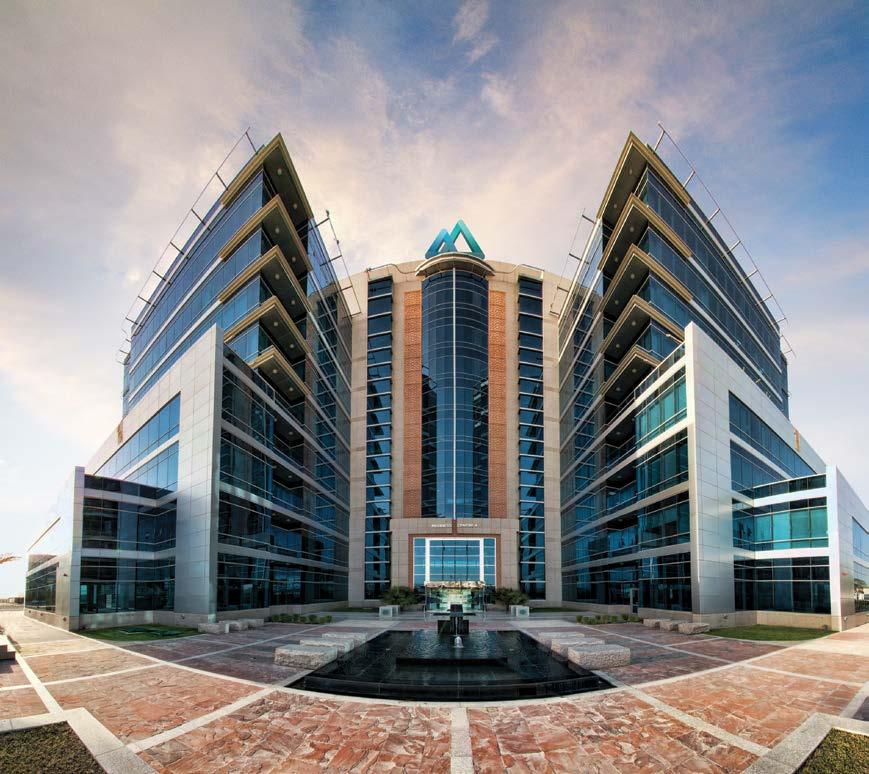
How RAKEZ is shaping the future of sustainable industry by turning pilot projects into lasting pillars of the UAE’s green economy. by ENTREPRENEUR ME STAFF
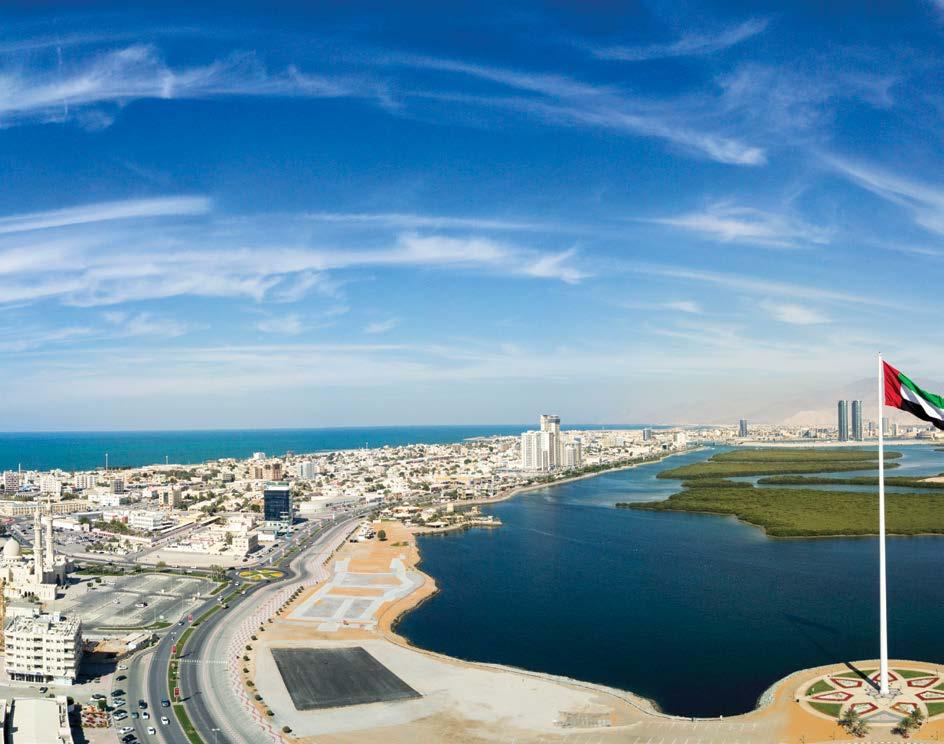
In a terrain where conserving water and energy is paramount, Ras Al Khaimah Economic Zone (RAKEZ) has set quite the example to show how building sustainable industries in the UAE can go beyond green strategies and frameworks. With its eco-friendly regulations, smart infrastructure, business incentives, and backing for circular economy practices, RAKEZ is paving the way for cleaner manufacturing that supports both national ambitions as well as global climate goals.
RAKEZ’s sustainability journey is rooted in clear standards and strong policy alignment. It operates in line with the UAE’s Net Zero 2050 agenda and Ras Al Khaimah’s Energy Efficiency and Renewables Strategy 2040, while also meeting the emirate’s Barjeel green building standards. These rules require features like greywater systems, solar water heating, and advanced HVAC and VRF technologies—making efficiency a built-in part of every development rather than an optional extra.
Certification adds another layer of accountability. Many RAKEZ companies hold ISO credentials for quality, environmental management, and energy efficiency, showing that their operations are regularly audited, benchmarked, and continually improving.
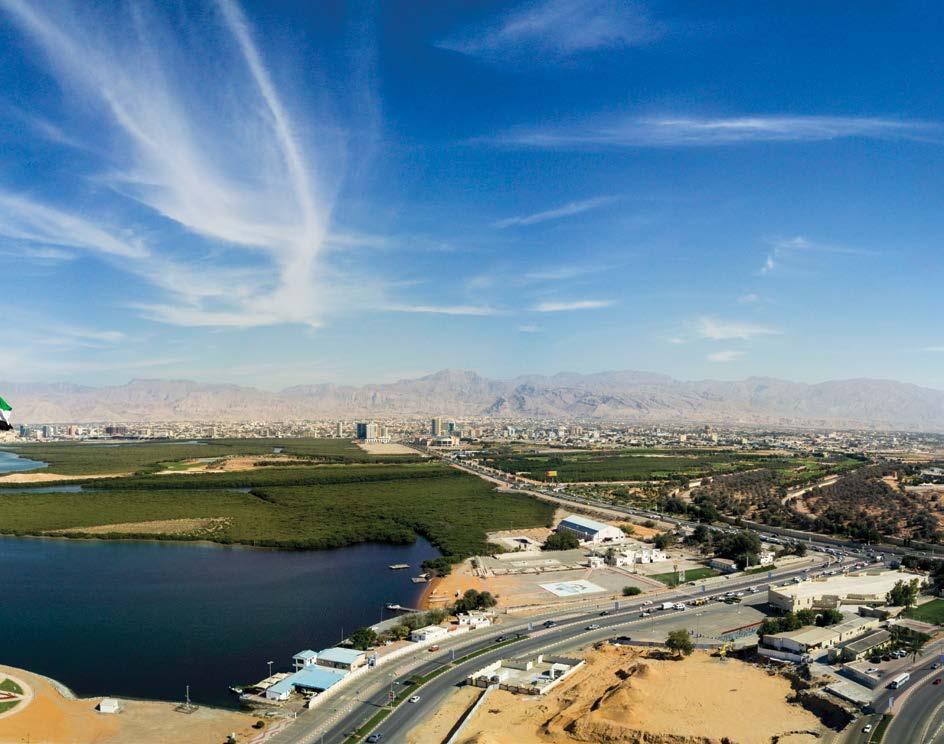
OPERATIONAL EFFICIENCY
A major defining feature of the zone is its sustainable infrastructure itself. District cooling systems have been upgraded with advanced, chemical-free water treatment technologies that cut scaling, corrosion and energy losses. Retrofitting initiatives across lighting and HVAC systems have reduced electricity and water demand, demonstrating
that resource efficiency can go hand-in-hand with industrial competitiveness.
In essence, RAKEZ’s strategy has come to fruition through the companies it hosts. Among them are the following:
}Ni Met Recycling has invested AED 40 million in a
RAKEZ's sustainability journey is rooted in clear standards and strong policy alignment. It operates in line with the UAE's Net Zero 2050 agenda and Ras Al Khaimah's Energy Efficiency and Renewables Strategy 2040, while also meeting the emirate's Barjeel green building standards.

stainless steel and non-ferrous scrap recycling facility in Al Ghail Industrial Zone. By diverting industrial metals back into the production cycle, the company directly supports the UAE’s circular economy goals and provides a reliable export stream to global markets.
}VIM Solar Robotics is launching its first GCC facility in RAKEZ to produce robotic cleaners for solar farms. Designed for durability and minimal maintenance in harsh climates, these robots help ensure the efficiency of solar installations, reinforcing the UAE’s renewable energy ambitions.
}Circular Computing, whose parent company is A2C Services Ltd, expanded its facility in RAKEZ with an AED8 million investment, boosting its capacity to produce up to 50,000 remanufactured laptops
per month. The global manufacturer has delivered significant environmental savings over the years—in carbon emissions, water use, and natural resource consumption—and demonstrated that remanufactured tech could serve as a reliable, sustainable alternative to new devices.
RAKEZ's commitment extends beyond infrastructure and tenants. The zone actively engages with the local community through partnerships with environmental organisations and through initiatives such as beach clean-ups and recycling drives.
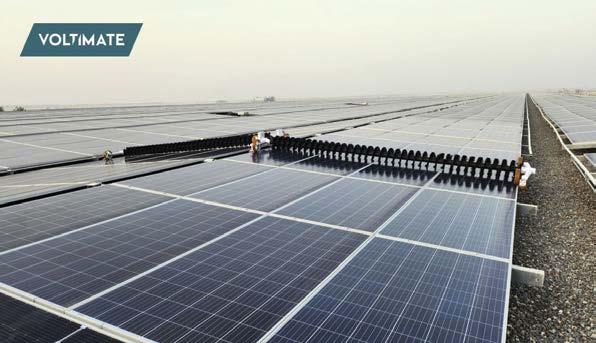
}Sparklo operates within RAKEZ with its reverse vending machines (RVMs), offering people rewards— like food or delivery vouchers—in exchange for recycling plastic bottles and aluminum cans. It assembles
AED62.4 million to build the UAE’s first automotive battery recycling centre in Ras Al Khaimah. The facility is designed to recycle around 35,000 metric tonnes of used lead-acid batteries annually, recovering lead
indoors and outdoors), and practise organic animal husbandry. Uterra chose RAKEZ for its strong vision, logistical advantages, and support in setup.
Undoubtedly, these stories show how RAKEZ is
→ Sparklo produces and operates reverse vending machines for recycling plastic bottles and aluminium cansfor solar farms
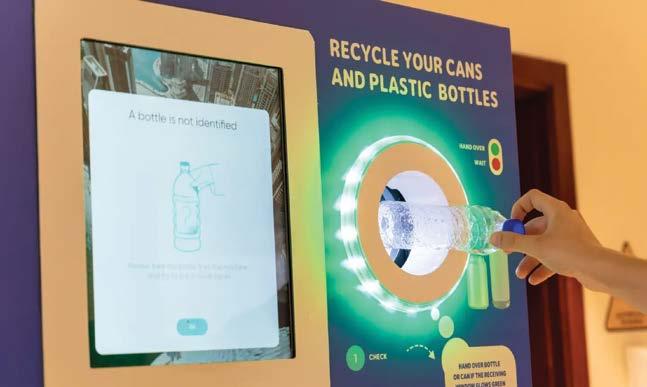
and deploys these RVMs across residential communities, shopping malls, and more throughout the UAE, with ambitions to expand further across the MENA region.
}Green Rock Group recently opened a production site in Ras Al Khaimah to manufacture certified plastic-free paper cups and lids. PFAS-free and home-compostable, these products respond to regional demand for sustainable alternatives to plastic-lined packaging and reflect a broader shift towards low-impact consumer goods.
}Royal Gulf Industries has committed a whopping
ingots and plastic granules for export to major manufacturing markets. This investment strengthens RAKEZ’s industrial ecosystem and accelerates the UAE’s move toward environmental sustainability and a circular economy.
}Uterra Middle East Agro Industries will invest US $20 million over three years to build Ras Al Khaimah’s first organic fertiliser facility. Located on a 33,000 sq.m. plot in Al Ghail Industrial Zone, the project will produce high-efficiency, micro-biological organic fertilisers, conduct R&D on plant cultivation and valuable fungi, grow fruits, vegetables, and berries (both
supporting a wide range of companies that cut down on waste, drive renewable energy, and create eco-friendly products—all while turning the emirate into a springboard for growth.
RAKEZ’s commitment extends beyond infrastructure and tenants. The zone actively engages with the local community through partnerships with environmental organisations and through initiatives such as beach clean-ups and recycling drives. By involving staff, tenants, and residents in these efforts,
RAKEZ fosters a culture of responsibility that strengthens the impact of its industrial policies.
RAKEZ’s efforts are closely tied to both national and local priorities, from the UAE’s Net Zero 2050 strategy to Ras Al Khaimah’s Energy Efficiency & Renewables Strategy 2040, as well as broader global sustainability goals. This ensures its incentives, infrastructure, and regulations all work together as part of a unified green framework.
The path forward is clear: expanding onsite renewable energy, fostering collaboration where one company’s by-products become another’s resources, and sharing transparent ESG data. These steps will reinforce RAKEZ’s role as a pioneer in sustainable industrial growth and help turn today’s pilot projects into lasting pillars of the UAE’s green economy.
RAKEZ is showing how industrial zones can lead the way in building a green economy. With abundant solar potential, coordinated policies, and a clear focus on efficiency and circularity, the zone demonstrates how industrial growth in arid regions can be both economically competitive and environmentally responsible. Ni Met Recycling, VIM Solar Robotics, and Green Rock Group are just the beginning—proof that RAKEZ’s vision of a greener future is already taking shape on the ground.
Our planet is facing unprecedented pressures. Industrialization and unchecked human expansion have triggered what scientists call the triple planetary crisis: climate change, biodiversity loss, and widespread pollution - ushering in the sixth mass extinction.
The latest Living Planet Report (2024) reveals a staggering 73% decline in monitored wildlife populations since 1970, with freshwater species suffering 85% declines. Meanwhile, over 75% of Earth's land surface is now degraded, and our oceans face mounting threats from pollution, overfishing, and acidification - exemplified by record sargassum blooms in 2025 that smothered shorelines from West Africa to the Caribbean.
Our economies and societies are fundamentally intertwined with nature through ecosystem services - from carbon sequestration and pollination to clean air and water. If current trends continue, we risk ecological collapse with catastrophic consequences.
Yet awareness is growing, reinforced by major environmental conventions and global gatherings. The Middle East, having hosted recent COP summits, is now preparing to welcome
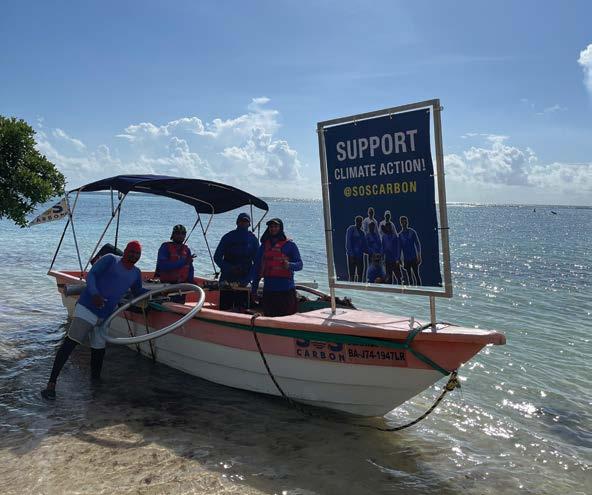
the IUCN World Conservation Congress in Abu Dhabi. Such gatherings do more than set agendas - they ignite innovation and motivate entrepreneurs to create solutions for today’s environmental crises.
A new wave of nature-positive entrepreneurs is rising to the challenge: some taking direct action through nature-tech and conservation innovations, others transforming high-impact industries like agriculture and construction. Alongside them, investors are recognizing the opportunity, with many funds expanding into nature and biodiversity.
This article explores these emerging nature-positive businesses and NGOs, highlighting Middle East examples and growth opportunities. Most will share their solutions at the IUCN Congress in Abu Dhabi, October 8-15.
The first group of entrepreneurs heading to Abu Dhabi are those providing direct solutions and tech for nature conservation and restoration, falling into three categories: 1) protecting and restoring ecosystems through science, policy and finance, 2) tackling pollution and waste for nature restoration, and 3) providing enabling tech for conservation and restoration.
}Protecting and restoring ecosystems through science, policy and finance
Altyn Dala Conservation Initiative, winner of the 2024 Earthshot Prize in the Protect and Restore Nature category, is a partnership enabling protection and restoration of vast areas of steppe grassland and wetland ecosystems across Kazakhstan. The partnership’s achievements include the remarkable recovery of saiga antelope, successful reintroduction of the Przewalski’s horse, and securing 5 million hectares of
Ocean Revive provides a patented BlueTech solution with streamlined workflows for coral nurseries and up to 30 times faster out-planting." Their strongest demand comes from “regenerative tourism projects looking to develop thriving diving experiences.” “
protected areas, creating rural jobs and nature tourism opportunities. Alyona Krivosheyeva and Mark Day, from their leadership team, will share their story at the IUCN Congress. AvayeBoom Bird Conservation Society in Iran, a finalist in the IUCN Changemakers program, advances bird conservation and awareness.
In marine restoration, Dr. Ulrike Pfreundt of Rrreef (Switzerland), whom I met at COP16, explained how her business uses "3D printed bricks made of burnt clay" to revive coral reefs, aiming to restore "1% of coastal coral reefs by 2034." Archireef (Hong Kong) provides similar solutions and recently opened an Abu Dhabi office.
Startups tackling invasive species include Inversa (US), which removes lionfish, pythons, and dragonfin carp, transforming them into luxury leather while restoring ecosystems. SOS Carbon (Dominican Republic), founded by MIT graduate Andrés Bisonó León, addresses sargassum overwhelming Caribbean coasts. As Andrés explained: "SOS Carbon harvests seaweed from the coastline before it invades the beaches, leveraging local talent and existing
→ Natureza Urbana works in both protected and urban areas worldwide.
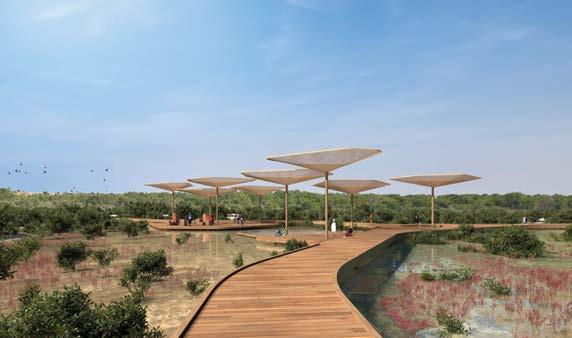
infrastructure. The biomass is then processed and turned into commercial products - ranging from plastic alternatives and cosmetics to agricultural bio-inputs such as biostimulants.”
Middle Eastern innovations lead this space. Ocean Revive, based at KAUST in Saudi Arabia, focuses on coral restoration. Co-founder Sebastian SchmidtRoach explains their advantage: "Ocean Revive provides a patented BlueTech solution with streamlined workflows for coral nurseries and up to 30 times faster out-planting." Their strongest demand comes from “regenerative tourism projects looking to develop thriving diving experiences.”
Goumbook, a UAE-based NGO advancing sustainability, has launched the bold MENA Oceans Initiative for ocean conservation and restoration in the region, which will host its own summit during the Congress.
Some enterprises focus on innovative funding schemes to protect biodiversity. Savimbo, Colombia-based and developer of the first certified biodiversity credits sold on international markets, is co-founded and co-owned with Indigenous community leaders. The company works with these communities to conserve rainforest using indicator species like the jaguar. CEO and co-founder Drea Burbank emphasizes: “We hope to build stronger partnerships with NGOs and philanthropists, in particular with the IUCN, to catalyse the biodiversity credit market.”
The Landbanking Group (Germany)
has created an innovative valuation and funding model for nature through its Verified Nature Units (developed with African Parks), which it will showcase at the upcoming IUCN Congress.
UAE-based Blue Forest, launched in 2021, has become a global mangrove restoration leader. Founder Vahid Fotuhi notes: "We're currenting implementing Africa's largest coastal restoration initiative in Mozambique. That project will generate 15 million blue carbon credits that adhere to the highest international standards for climate, biodiversity and community projects."
Beyond Mozambique, Blue Forest is also developing projects in West Africa, Vietnam and Indonesia spanning over 250,000 hectares – an area 3 times the size of New York City.
Meanwhile, private land conservation and leasing models are enabling broader participation in direct nature protection, showing that innovative finance and entrepreneurship are essential to scaling restoration solutions.
}Providing enabling tech for conservation and restoration
A fast-growing group of nature-positive businesses are those providing enabling tech to support conservation and restoration, working with both the conservation sector and industry. In a recent discussion, Benjamin Barca from NatureMetrics, explained how the company is collaborating with IUCN to accelerate Red List updates. NatureMetrics will also run workshops on this at the
IUCN Congress in Abu Dhabi.
EarthAcre is a Kenya-based company that developed a digital platform to help communities protect and restore biodiversity on their lands. By tracking consent, land ownership, and ecosystem health, it enables traceable payments and creates new income opportunities through nature-based assets and markets.“As a member of the Maasai community, I know the local perspectives and concerns firsthand - that trust shapes our platform,” says EarthAcre co-founder Patita Nkamunu.
Earth5R (India), founded by Saurabh Gupta, is a UNESCO-recognized environmental organization pioneering a “Sustainability as a Service” (SaaS-X) platform that addresses both climate and biodiversity. Saurabh notes: “Having mobilized over 1.2 million farmers and 1.3 million citizens across 65 countries, Earth5R’s technology promotes citizen science to rejuvenate ecosystems like urban rivers, rewards farmers for regenerative practices, and incentivizes eco-friendly behaviors through corporate partnerships.”
In the UAE, Nabat, a venture born out of Abu Dhabi’s Advanced Technology Research Council (ATRC), develops AI and autonomous robotics for precision monitoring and restoration, particularly of mangrove ecosystems.
“Nabat not only provides tools for monitoring and reporting, but also supports clients in implementing restoration strategies,” explained Mehdi Ajana, Head of Strategy. Nabat will showcase its solutions at the
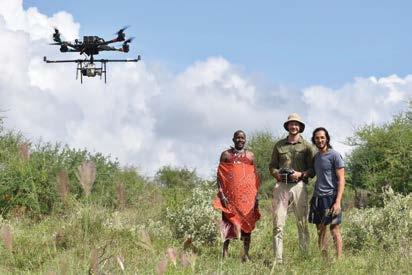
IUCN Congress.
Another player is 4EI (4 Earth Intelligence), a UAE-founded company operating in the GCC and UK. Founder and CEO David Critchley describes their work as: “combining earth observation data with AI-driven analytics to deliver actionable intelligence.” CTO Jonathan Hendry will be presenting their recent work on the UAE’s natural capital project at the Congress.
}
Other organizations focus on tackling pollution to reverse the ecological crisis. For example, Clean Rivers, a foundation launched in 2024 in Abu Dhabi, focused on addressing global challenges at the nexus of waste and water. Its mission is to prevent waste leakage and pollution across the land-to-sea continuum while supporting the lives and livelihoods of riverine communities. CEO Deborah Backus explains: “Clean Rivers is a funder and convener, working with local communities, implementers and governments to drive systems change that tackles waste mismanagement and its cascading impacts on
people and planet. To date, we have already committed up to $60 million in Indonesia, the Philippines and Brazil.” She will also take part in the IUCN Congress, particularly its Philanthropy Summit with Erth Zayed Philanthropies under which Clean Rivers is an affiliated organization.
In the Middle East, plastic pollution is one of the most urgent environmental crises. Egypt, for example, Africa’s largest plastics producer (about 60% of the continent’s output), is also a leading source of marine litter, contributing a considerable share of plastics entering the Mediterranean. A significant portion of this comes through the Nile, the country’s lifeline, which is increasingly burdened by waste leakage along its course.
In response, local initiatives like VeryNile, Banlastic, and Plstka mobilize communities, promote recycling, and raise awareness about single-use plastics. International players are active too: Plastic Bank, a Canadian social enterprise pioneering “social plastic,” has operated in Egypt for nearly five years, creating income for waste collectors while cutting leakage into
rivers and seas. Enaleia, a Greek nonprofit, works with fishers in the Mediterranean to remove marine litter and integrate plastics into circular economy supply chains. But true progress will require addressing the problem where it begins: upstream in production and consumption.
The second group of nature-positive businesses is transforming industries with high environmental impacts. Here, we highlight businesses in three areas: 1) regenerative agriculture, 2) sustainable alternatives to plastics, and 3) green and biophilic design and construction.
}Regenerative agriculture
Kelp Blue, winner of the 2023 Zayed Sustainability Prize for Climate Action, operates the world’s first large-scale giant kelp farm off Namibia. Its biostimulants support regenerative agriculture while promoting marine biodiversity. UN Champion of the Earth, Sekem, is Egypt’s leading regenerative agriculture player. It was the first company to issue carbon credits (Gold Standard) for biodynamic farming. Its founder and CEO, Helmy Aboueish, notes: “Sekem’s economy of love helps farmers transition to regenerative agriculture and gain additional revenues through carbon credits and PES.”
The Waste Lab, UAEbased, supports regenerative agriculture through composting and circularity. Cofounder and CEO Lara Hussein adds: “Our compost supports soil biodiversity, translating
into healthy, productive soils.”
Herou Alliance, a Mali-based agroforestry business led by Rokiatou Traore, plants moringa trees to restore degraded land and make nature-based products, creating local livelihoods - a vision she shared with me at COP28 in Dubai. Other emerging players include Commonland, Farmland LP, and AgTech solutions like InSoil, Agreena, and Biome Makers.
Today, regenerative agriculture covers roughly 15% of global cropland; this must triple by 2030 to meet planetary biodiversity and climate goals.
Plastics remain a major driver of biodiversity loss, particularly in rivers and oceans. Ocean plastics alone are estimated to cost up to $2.5 trillion per year in lost ecosystem services. Plastics also generate around $1.5 trillion in health-related costs annually.
Sway, California-based, develops compostable materials for hard-to-recycle plastics using seaweed as a key ingredient across its product portfolio. CEO & Co-Founder Julia Marsh explains: “Using red and brown seaweed like kelp, gracilaria, and sargassum, we can match and even beat conventional plastic performance, while regenerating marine ecosystems.”
Notpla (UK) also makes biodegradable seaweed-based packaging and won the 2022 Earthshot Prize in the 'Build a Waste-Free World' category. In the Middle East, Palmade (UAE) produces biodegradable cutlery from date-palm waste. Co-founder Lamis Al Hashimy emphasizes using certified products, as many
alternatives aren’t fully compostable.
Polymeron, based at KAUST, Saudi Arabia, converts agricultural waste into biodegradable plastics. CEO Rodrigo Jiménez Sandoval stresses: “The region needs stricter regulations to phase out single-use plastics. Abu Dhabi is leading with its Single-Use Plastic Policy, and we hope others follow.”
}Green and biophilic design and construction As the adage goes, 90% of a product or project’s environmental footprint is set in its design. Innovative architecture, construction, and landscaping firms are taking this to heart.
Natureza Urbana (Brazil) works in both protected and urban areas worldwide and will showcase its projects at the IUCN Congress. Founder Pedro Lira notes: "Sustainable construction solutions are often perceived as costly, although many can be more economical with the right design and strategic use of resources. There is also strong growth in demand, creating unique opportunities for specialized players in the market, including in areas such as ecotourism."
IUCN Changemakers finalist, Ecodome Maroc, focuses on rural eco-construction using natural materials in Morocco. Thrive Lot (US) converts backyards into edible, pollinator-friendly garden ecosystems. As ecologist Doug Tallamy puts it: “Every little bit of habitat helps,” highlighting the impact of even small changes in our backyards. Other sectors, like education and advocacy, are also innovating. Elyx Foundation (France) and Greenish Foundation (Egypt) will be present at the Congress. At
the Congress, Elyx will run the Archipel exhibition, an immersive experience telling stories that inspire new forms of coexistence between humans and biodiversity.
The signs are clear: the market is shifting, opening unprecedented opportunities for visionary entrepreneurs. AI and tech solutions for conservation are advancing rapidly, climate and biodiversity are increasingly intertwined, and frameworks like the KMGBF, TNFD, and emerging regulations are embedding nature into business decision-making. Kevin Webb, co-founder of Superorganism, a VC focused on biodiversity, observes: “Now is a great time to invest in nature-positive startups. Measurement technologies are ripe, nature-based solutions are proving effective, and policy developments are creating direct market opportunities.”
The upcoming IUCN World Conservation Congress in Abu Dhabi, held every four years, is a pivotal moment to forge partnerships, scale innova-
↓ Californiabased Sway develops compostable materials for hard-to-recycle plastics using seaweed.
tion, and shape the future of business in harmony with nature. For those bold enough to envision it, the naturepositive economy is not just possible - it is the next frontier of opportunity.

Karim Haggar, PhD, is a passionate nature and adventure travel blogger, author, strategy advisor, and angel investor working at the intersection of sustainability and innovation. He is currently Senior Advisor with Roland Berger, focusing on sustainability and nature conservation. As an investor and mentor, Karim supports impact-driven entrepreneurs and startups in several sustainability areas including circularity, nature tech and conservation solutions, environmental education, and ESG/sustainability solutions. Karim previously co-founded and ran an award-winning ecotourism and educational travel business based in Canada with operations in over 30 countries. He also completed a PhD in strategy and innovation and taught entrepreneurship at McGill University in Canada.
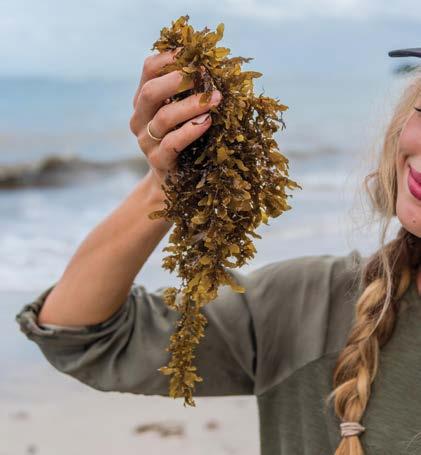
17-20 NOVEMBER 2025
Riyadh Exhibition & Convention Centre (Malham), Saudi Arabia
MOST ATTENDED REAL ESTATE EVENT

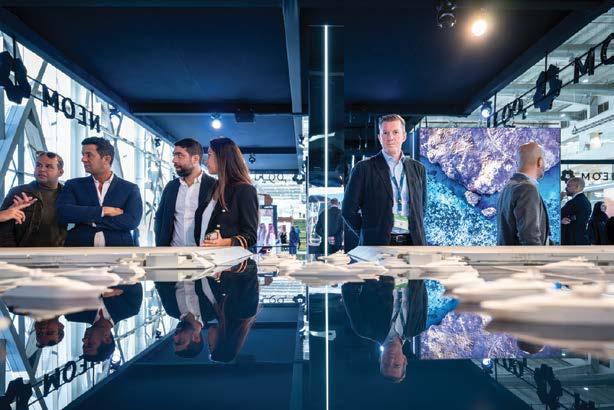
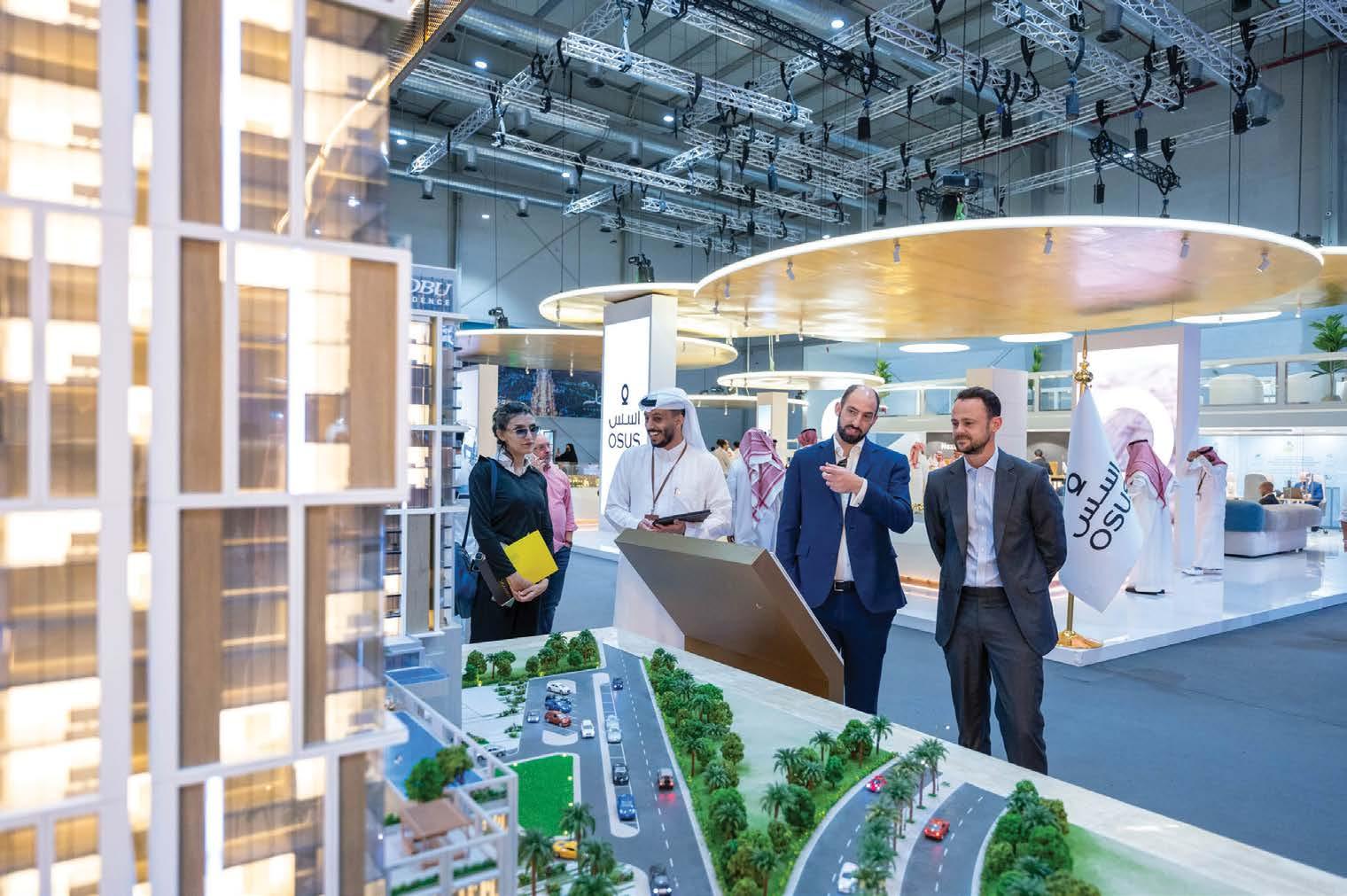
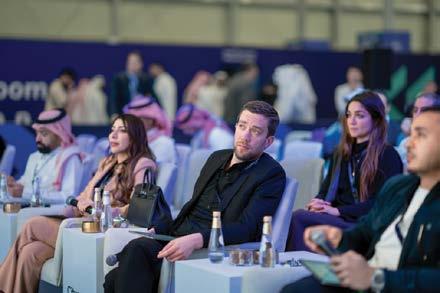
40 Countries Exhibiting
460+ Exhibitors
10 Country Pavilions
450+ Speakers
4 Stages

Gadgets and doodads that you might’ve missed out on, sourced by a tech aficionado. by
TAMARA CLARKE
iPhone 17 boasts a striking new design with upgraded camera technology. The all-new Center Stage front camera features the first square front camera sensor on iPhone, offering a wider field of view and higher resolution - up to 18MP for photos - to capture more detail. Plus, you no longer have to rotate the iPhone to take a landscape selfie. The device features all 48MP rear cameras for the first time, including a powerful 48MP Fusion Main camera with an optical-quality 2x Telephoto and a new 48MP Fusion Ultra Wide camera that captures expansive scenes and macro photography in more detail. The 6.3-inch Super Retina XDR display with ProMotion is

bigger and brighter, enabling smooth scrolling, immersive gaming, and improved efficiency.1 And with the new Ceramic Shield 2, the front cover is tougher than any smartphone glass or glass-ceramic, with 3x better scratch resistance than the previous generation and reduced glare. It is all powered by the latest-generation A19 chip for higher performance and longevity. iPhone 17 gets up to 30 hours of video playback - eight more hours than the previous generation. The new Adaptive Power Mode in iOS 26 also gets to know your typical battery consumption and anticipates when you might run low, intelligently conserving power to help you get through the day. iPhone 17 will now be available starting with 256GB of storage - double the entry storage from the previous generation - and a 512GB option, in five beautiful colors: black, lavender, mist blue, sage, and white.


The new Odyssey G7 (G75F model) is available in two sizes: a 37” 4K UHD with a 16:9 aspect ratio and Samsung’s first 40” Wide UHD (WUHD), offering 5K2K resolution with a 21:9 aspect ratio. It also supports features such as Picture-by-Picture (PBP) and Picture-in-Picture (PIP), so you can multitask with split-screen capabilities. The monitors feature VESA DisplayHDR 600 certification and 350 nits of brightness to deliver excellent
The Acer Predator Helios 18P AI is built for professionals who demand highperformance computing for work and play. Everything you love in a gaming laptopspowerful graphics and processing capabilities - has been combined with AI computing, inferencing, and productivity features, making this device ideal for developers, content creators, and gamers. Helios 18P AI is powered by up to an Intel Core Ultra 9 Processor 285HX with Intel vPro. It supports up to 192 GB of EEC memory, which actively detects and corrects common types of data corruption – making it ideal for professions where data integrity is critical. It rounds out with NVIDIA GeForce RTX 5090 Laptop GPU with DLSS 4 for premium graphics. The laptop also includes up to 6 TB PCIe Gen 5 SSD, Thunderbolt 5 Type-C, and Killer Ethernet E5000B and Wi-Fi 7. All this power comes to life on large 18-inch 16:10 displays ideal for creative workflows such as image generation, video editing, and 3D rendering. Plus, Acer’s proprietary thermal solution keeps things cool and reliable with dual 6th Gen AeroBlade metal fans.

contrast and vivid color reproduction for both gaming and video content. To enhance gameplay and everyday usability, each model offers: HDR10+ Gaming for optimized HDR gaming performance, AMD FreeSync Premium Pro to reduce lag and image tears for smooth, Auto Source Switch+ for automatic input detection when devices are connected or powered on, Versatile connectivity with one DisplayPort 1.4 and two HDMI 2.1 ports. The monitors round out with ergonomic design featuring a Height Adjustment Stand (HAS) with tilt and swivel capabilities.
TAMARA CLARKE, a former software development professional, is the tech and lifestyle enthusiast behind The Global Gazette, one of the most active blogs in the Middle East. The Global Gazette has been welcomed and lauded by some of the most influential tech brands in the region. Clarke’s goal is to inform about technology and how it supports our lifestyles. Talk to her on Twitter @TAMARACLARKE theglobalgazette.com
From better goods to better wardrobe bests, every issue, we choose a few items that make the approved executive selection list. In this edition, our picks are from Orskin Aesthetics and Berluti.
The iconic jacket reinvents itself.
By Berluti
The Forestière’s name was inspired by gamekeepers, or guardians of the woods, who in the early 20th century need ed a work jacket they could wear out in the forest. It was designed over half a century ago by Léon Grimbert, founder of the Paris menswear institution Arnys, located at 14 Rue de Sèvres – a leading authority on Left Bank chic. When Berluti extended its remarkable allure to a full range of menswear in 2011, Alessandro Sartori revisited the legendary Forestière to incorporate a fresh iteration in to the Maison’s first ready-to-wear collection. The Forestière continues to reinvent itself ever since. www.berluti.com
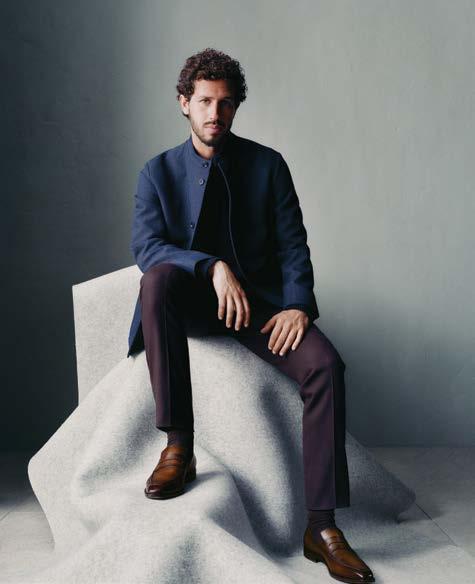


If you’re looking for a treatment that delivers glowing skin and feels like pure indulgence, the Signature Facial at Orskin Aesthetics is one to know.
Every facial starts with the clinic’s signature double cleanse before moving into a tensionmelting massage that preps the skin and boosts circulation. From there, the treatment is completely bespoke – designed around your individual skin needs. That might mean oxygen therapy to brighten, advanced radio frequency for lifting and firming, or a tailored peel for smoother texture. For deeper results, full-body LED can also be used to rejuvenate at a cellular level while enhancing overall wellbeing.
Clients are also treated to a hand and arm massage, as well as neck, shoulder and décolletage massage. Lymphatic drainage compression boots can be added too, so


while the face is being treated, the body enjoys the sensation of a full massage. It’s the ultimate head-to-toe reset.
“We created the Signature Facial to be more than just another treatment,” says Orsi Matheisz, of Orskin Aesthetics. “It combines the precision of advanced skin technology with the indulgence of

a spa ritual, so our clients leave with not only visible results but also the feeling of complete restoration.” This is more than a facial – it’s an experience. Combining spa-level relaxation with advanced aesthetics, the Orskin Aesthetics Signature Facial leaves clients glowing, sculpted, and completely renewed. www.orskin.ae


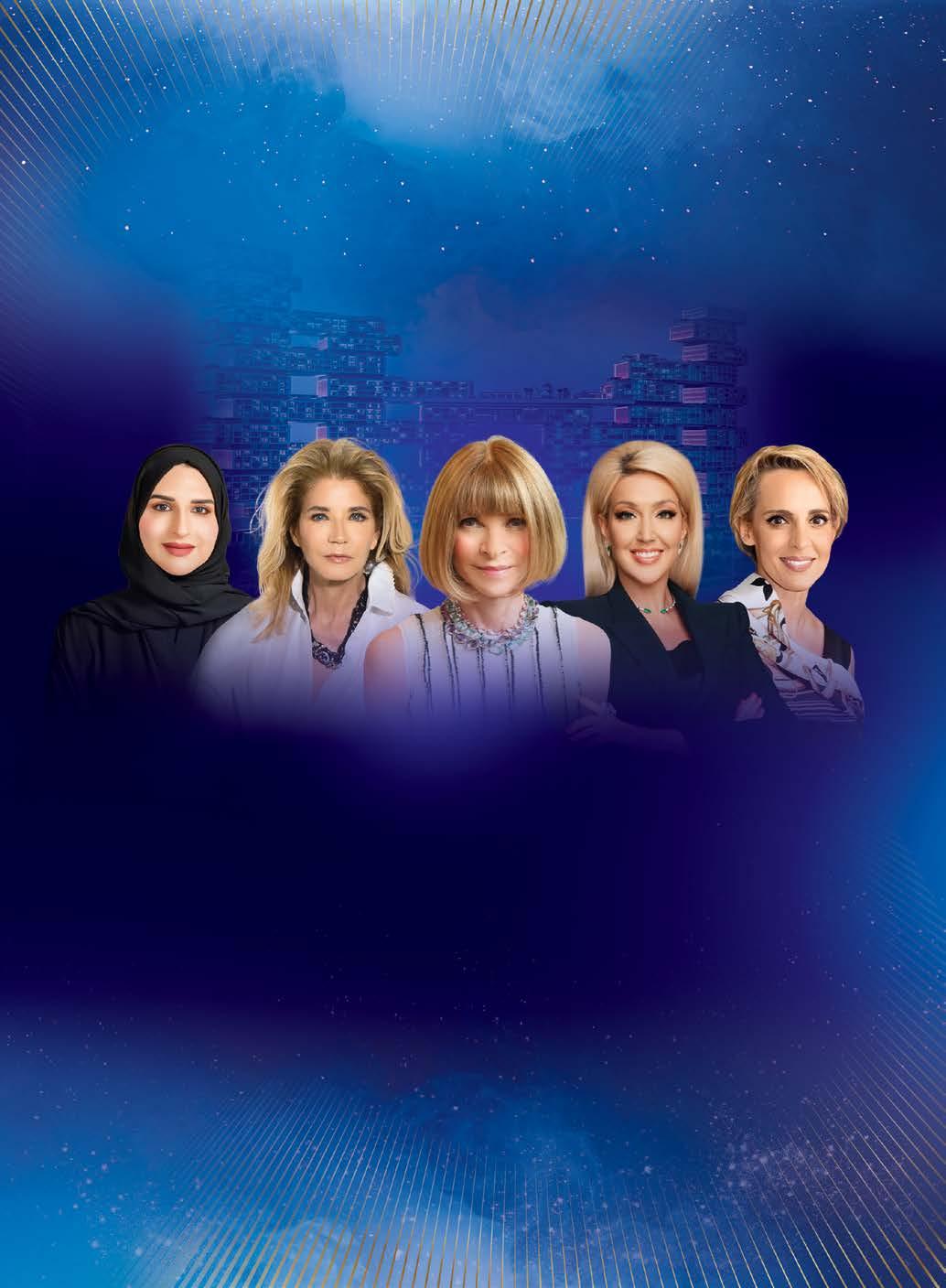
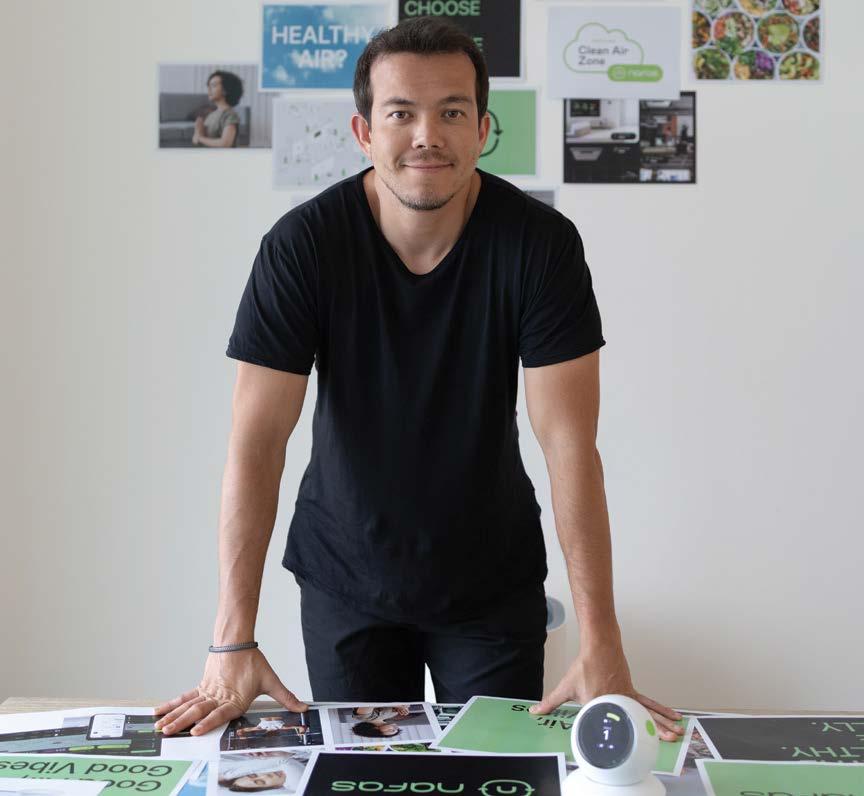
Nathan Roestandy, co-founder and CEO of Nafas, on scaling the company's air-quality technology with Qatar as a key market for regional growth.by
Ntathan Roestandy, co-founder and CEO of Singaporeheadquartered Nafas, proudly shares that his air-quality health technology company has already generated significant revenue across multiple markets and is now poised to scale further. The company’s immediate focus is on establishing a strong presence in Qatar and the wider GCC, backed by its first institutional funding round led by Singapore-based Rigel Capital and Qatar Development Bank.
Nafas’s entry into Qatar began with early conversations with the Qatar Environment and Energy Research Institute (QEERI), which eventually led to its first investment in the country through Doha Tech Angels, an angel investment syndicate based in Doha. Following several visits and engagements with various organizations, it became clear that Qatar— and the wider GCC—offered a strong strategic fit for the company’s growth. "In 2022, as we began approaching research labs that specialized in air quality, we got connected with QEERI (Qatar Energy & Environment Research Institute) which paved the way for our eventual expansion into Qatar and GCC,” Roestandy says. "However, it wasn’t until we received investment from Qatar Development Bank (through the Startup Qatar program) that we finally decided to officially setup an office in Qatar, which included myself relocating to Doha. This was in early 2025, since then it's been an amazing experience and a big inflection point in my personal development and aspirations of being an entrepreneur.”
The origins of Nafas trace back to Roestandy’s early career in his family’s manufacturing business, which produced apparel for regional and global fashion brands. Frequent business trips to China exposed him to the country’s rapid industrialization and the new industries it was fueling. Among the developments
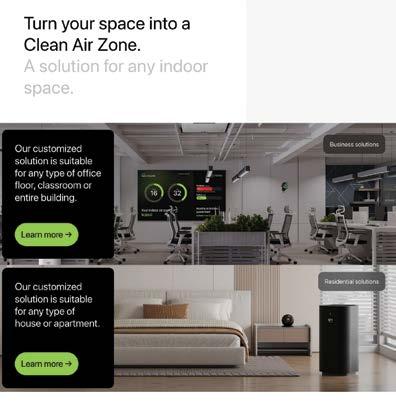
that stood out most to him was the growing challenge of air pollution—an issue that would later inspire the creation of Nafas. "In China, sustaining rapid growth came at the expense of immense environmental damage as well as increasing backlash from the public, specifically around issues that carried significant health consequences,” Roestandy explains. "As awareness for air pollution reached a tipping point, consumer behavior en masse began to shift and drive demand for emerging trends in the health and wellness category, one of which was air pollution. Seeing all of this happen in China, I began to ask myself if this is a trend that could also unfold in other emerging countries?”
Roestandy then began developing a business plan focused on creating a vertically integrated software and hardware company. At its core was a central value proposition: addressing how millions of urban residents in highly polluted cities could be supported in their pursuit of healthier air. "A few months later I recall meeting Piotr, an old high school friend who started his career in advertising and ended up as Chief Marketing Officer at a giant tech company,” he says. "He expressed to me his desire to start a business in the environmental space and also spoke about air pollution and how he was personally affected by it. After several conversations, we decided to team up and build Nafas. My background in manufacturing and product design coupled with his marketing and communications skillset proved to be an effective combo as we proceeded towards recruiting a founding team which included our third co-founder Eason Chow, an ex-Dyson designer and engineer.”
“
Expanding to the wider GCC market was always part of Nafas’s Middle East expansion plans, however, we wanted to first situate ourselves in Qatar and build a team that would support expansion into other GCC countries.”
The journey to build Nafas officially began in early 2020, with the Nafas mobile app in Indonesia quickly becoming the #1 environmental app in the country, reaching hundreds of thousands of downloads and helping Nafas win the prestigious Google award for Social Impact Startup of the Year. Roestandy adds, "The second act of the business was the launch of the Clean Air Zone subscription service, an indoor air quality monitoring and purification solution that combined hardware,
software and operations into a fixed monthly fee. The goal of Clean Air Zones is simple, to democratize access to healthy air and create a new standard for indoor air quality management in emerging countries. Accomplishing this goal would entail building strong competencies across a wide range of domains, from cutting edge hardware for air purification and monitoring, cloud and IoT platforms to big data and AI."
Today, Nafas counts multinational companies, international schools and universities, as well as government organizations as its customers. The Clean Air Zone service is also serving hundreds of residential customers across Qatar, UAE, and Indonesia. "Nafas is currently operational in the UAE and is in the process of setting up an entity in Dubai,” Roestandy says. "Expanding to the wider GCC market was always part of Nafas’s Middle East expansion plans, however, we wanted to first situate ourselves in Qatar and build a team that would support expansion into other GCC countries.”
He adds, "While Qatar’s domestic B2C market may be small, its B2B and B2G markets are sizable, therefore it is important to correctly estimate the market opportunities relevant to the startup and approach expansion in a very tactical and efficient way while making sure that it is investing in the right avenues and forming partnerships to help with operations and distribution.”
Offering his perspective to
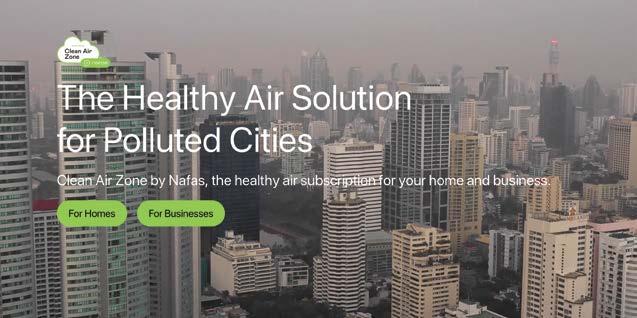
WHILE
MAY BE SMALL, ITS B2B
ARE SIZABLE, THEREFORE IT IS IMPORTANT TO CORRECTLY ESTIMATE THE MARKET OPPORTUNITIES RELEVANT TO THE STARTUP AND APPROACH EXPANSION IN A VERY TACTICAL AND EFFICIENT WAY."
fellow entrepreneurs, Roestandy reflected that the most significant hurdle Nafas encountered in Qatar was navigating the complexities of deal-making. "As a foreign company entering Qatar it's easy to become enthralled by the myriad of opportunities available, given that there are so many of them. However, developing a good understanding of the cultural nuances of doing business in Qatar and more importantly learning the mechanics of how to close deals is something that is less obvious and often overlooked,” he says. "In fact, it is perhaps the most important challenge to overcome in order to become successful, especially if the business involves selling to government institutions and enterprise customers. For me personally, overcoming that challenge required a lot of guidance and support which fortunately already existed in the startup ecosystem.
However, without extreme proactiveness and curiosity in reaching out to key individuals and organizations as well as building strong relationships, Nafas would have had a much more difficult time in building traction in Qatar."
Nafas currently has four commercial partnerships with various companies spanning Qatar, the UAE, and KSA, which enable it to expand in a cost effective manner while still maintaining a strong presence in each market. "Building strong commercial partnerships that leverage each company's distribution and operational capabilities is a critical part of Nafas’s expansion strategy,” Roestandy says.
Roestandy concluded by noting that in many emerging countries, air pollution and other environmental challenges are often seen as unavoidable byproducts of growth and industrialization,
making such markets well-suited for Nafas’s solutions. Qatar, however, stands out as particularly attractive, with a unique combination of factors that strengthen its potential as a key market for the company’s expansion. "The first is a pro innovation government that is playing a crucial role in shaping the development trajectory of the country, particularly around sustainability and health, two core pillars of Nafas’s value proposition,” he says. "The second, which closely relates to the first, is favorable regulatory conditions to help foreign companies such as Nafas enter the market.
Lastly, a growing startup and capital markets environment that's conducive towards early-stage company growth. Adding to that is the unique geography of the country which makes air pollution somewhat of an endemic problem."
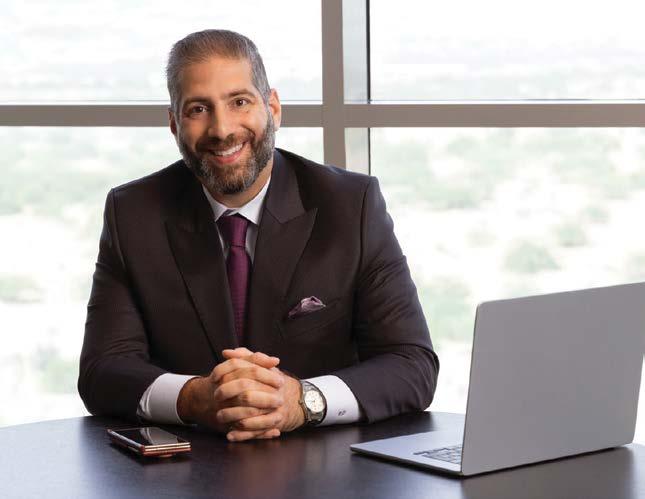
Ras Al Khaimah has rebranded and relaunched RAK Digital Assets Oasis as Innovation City (INC), positioning the emirate as a hub for nextgeneration technology and innovation. Designed to foster a global ecosystem for entrepreneurs and disruptors, the initiative
will initially focus on five high-growth sectors: Web3 and digital assets, artificial intelligence, gaming and iGaming, robotics, and healthtech and digital health.
Sheikh Mohammed bin
Humaid Al Qasimi, Chairman of Innovation City, noted that the project will "shape industries and put Ras Al Khaimah on the map as a capital of
innovation for decades to come."
Operating as an AIpowered free zone, Innovation City will leverage artificial intelligence to craft regulatory frameworks and streamline company set-up processes.
The project will also see the development of prime land in Ras Al Khaimah with infrastructure designed
→ Paul Dawalibi is the CEO of Innovation City.
specifically for technology enterprises.
Paul Dawalibi, CEO of Innovation City, emphasized that the initiative supports the vision of Ruler Sheikh Saud bin Saqr Al Qasimi for "sustainable development, economic diversification and innovation."
Operating as an AIpowered free zone, Innovation City will leverage artificial intelligence to craft regulatory frameworks and streamline company set-up processes.


Government aims for a 67% surge in businesses as part of economic diversification drive.
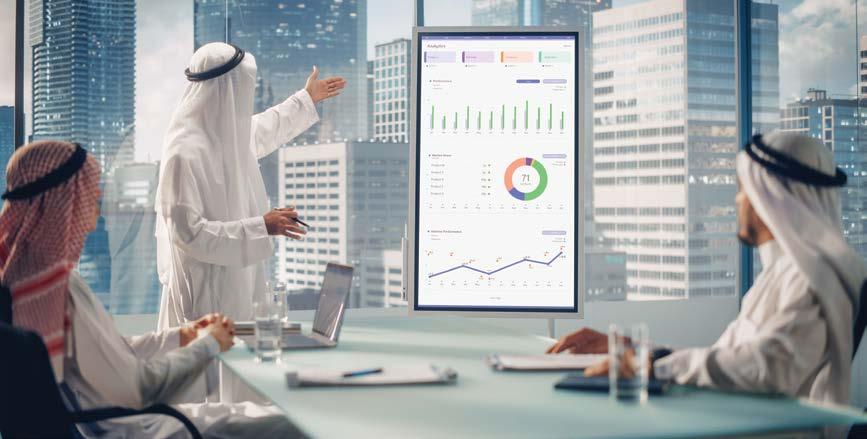
The United Arab Emirates has announced a bold plan to grow the number of registered companies to two million by the year 2031, a significant leap from the current 1.2 million businesses operating in the country. The target represents an approximate 67% increase and underscores the government's long-term strategy to cement the UAE's position as a global hub for trade, investment, and innovation.
Small and medium enterprises (SMEs) are expected to play a central role in this growth. Currently, about 94% of the nation's companies fall into the SME category, contributing more than 60% to the non-oil economy. Officials believe scaling up this segment will not only boost competitiveness but also strengthen the UAE's resilience against external shocks.
The initiative is closely aligned with the country's diversification agenda, which seeks to reduce





